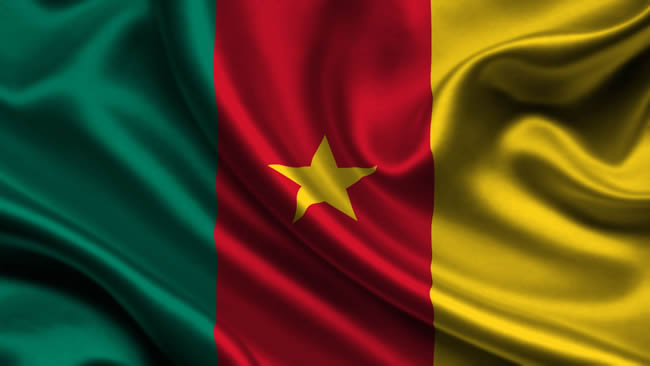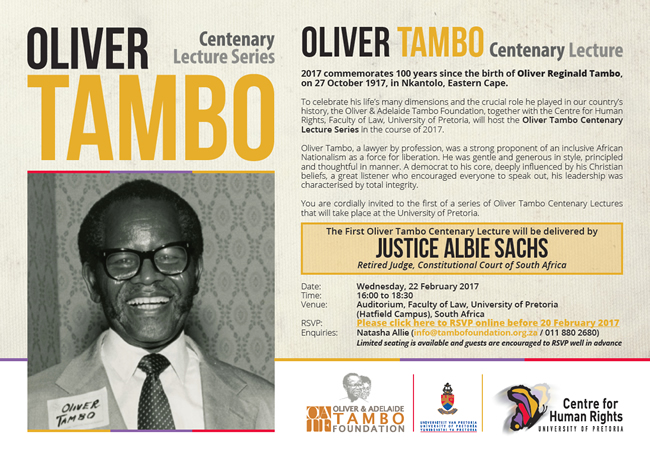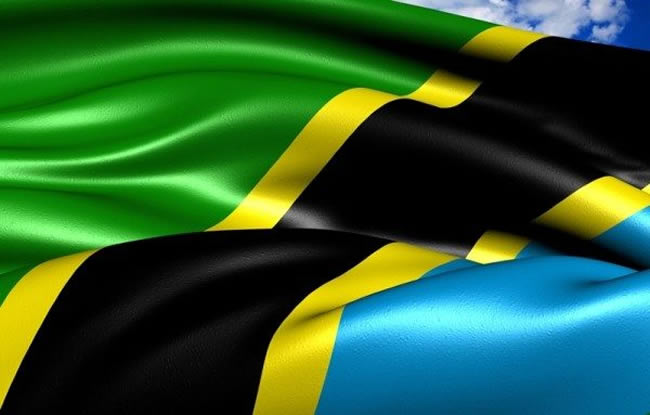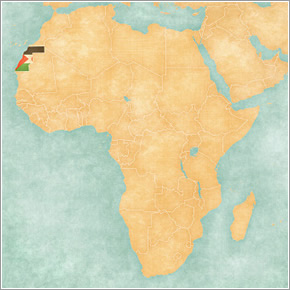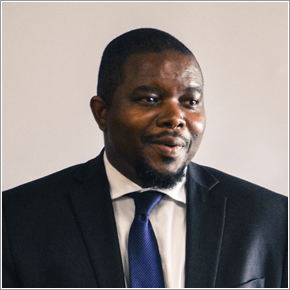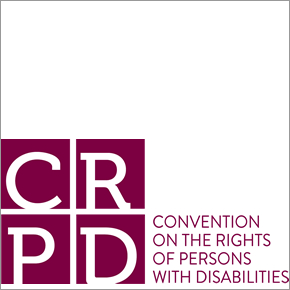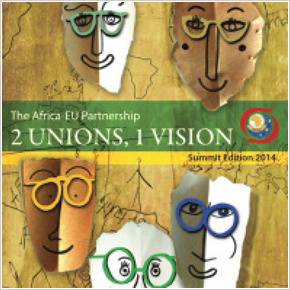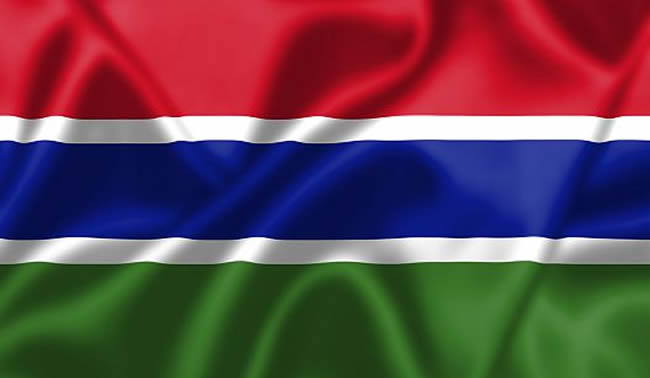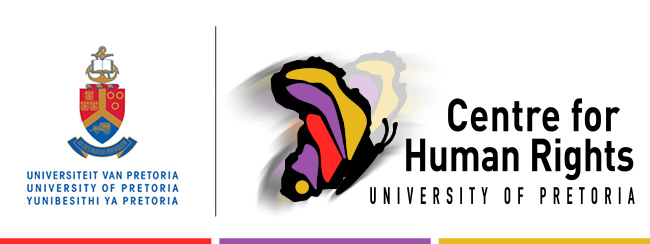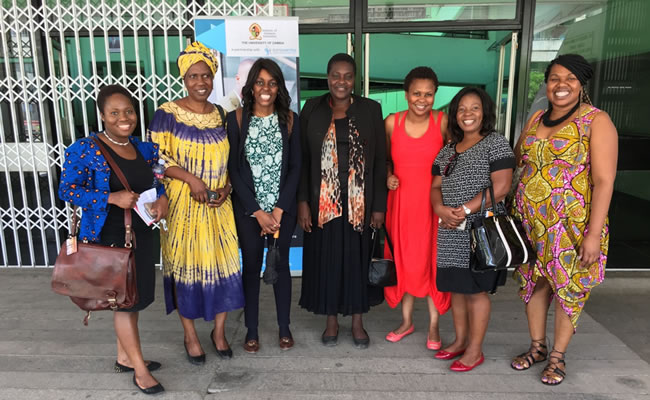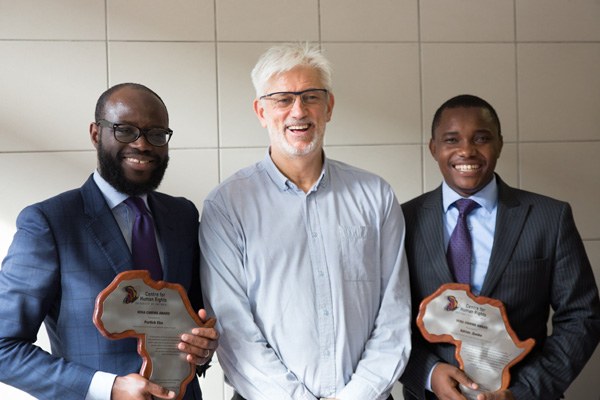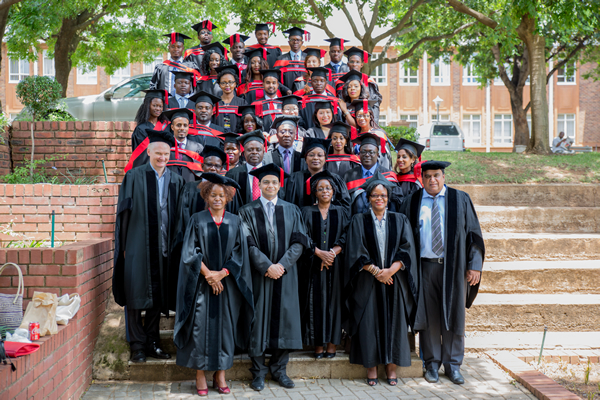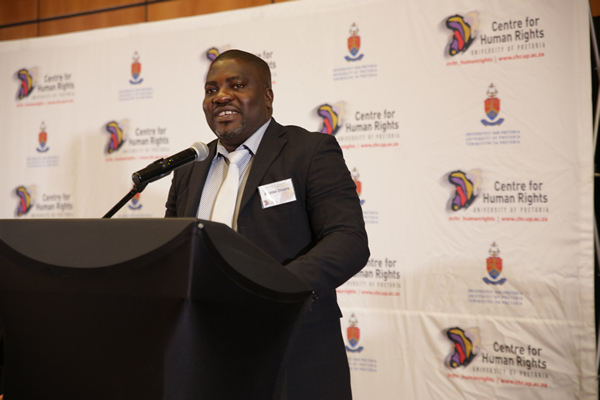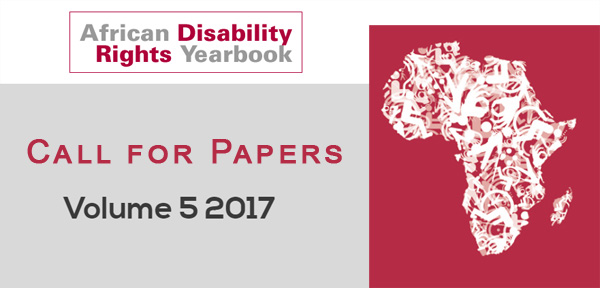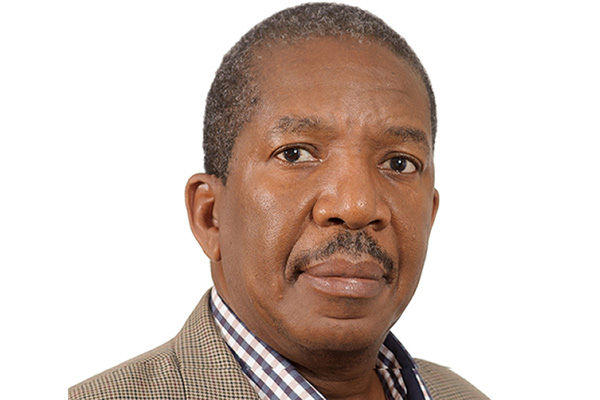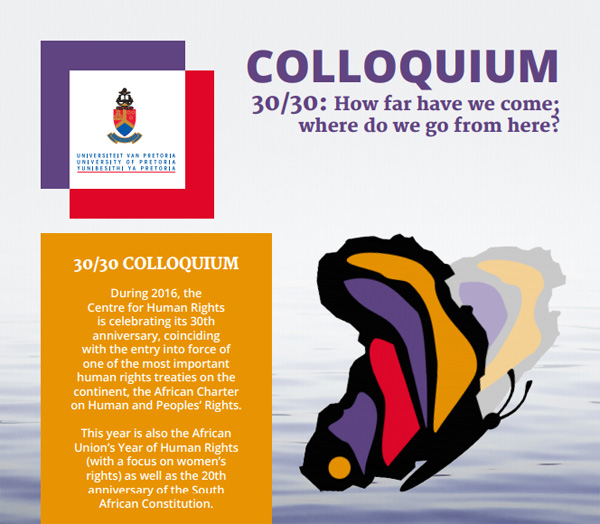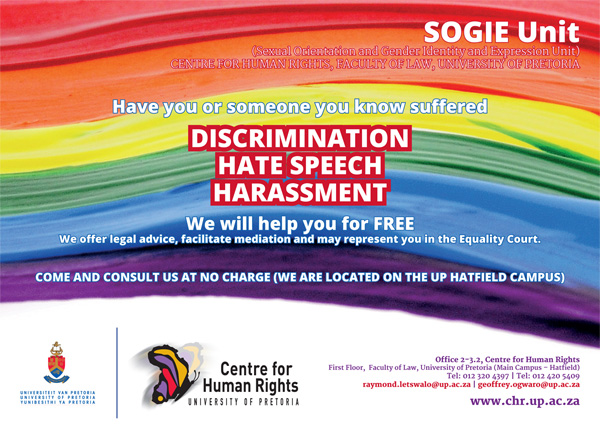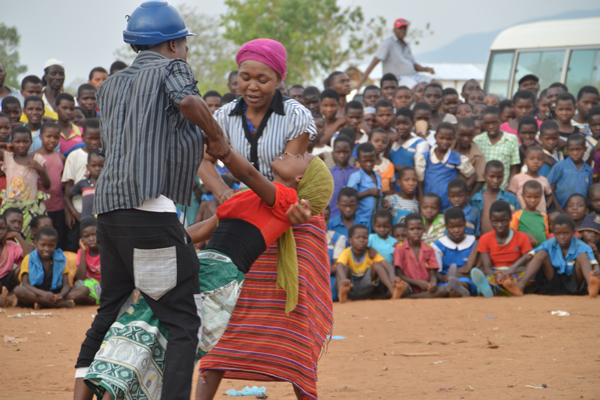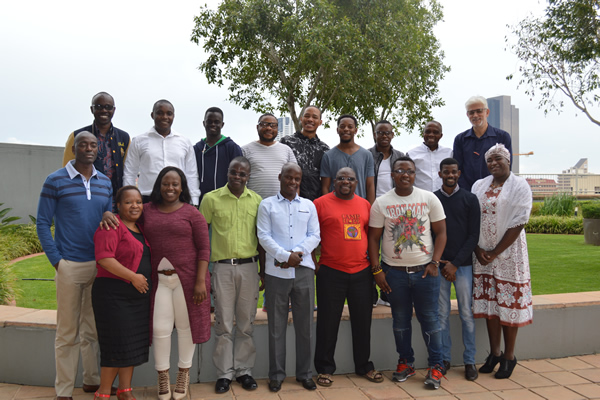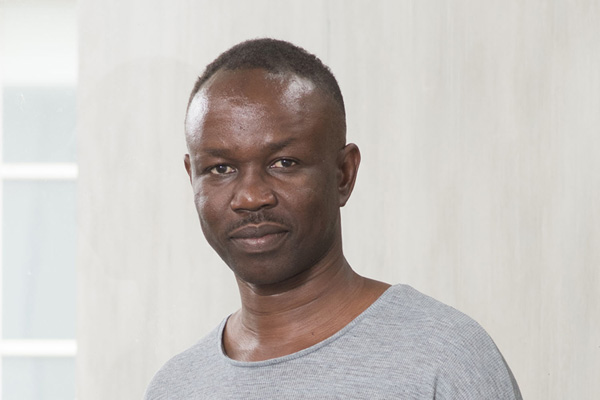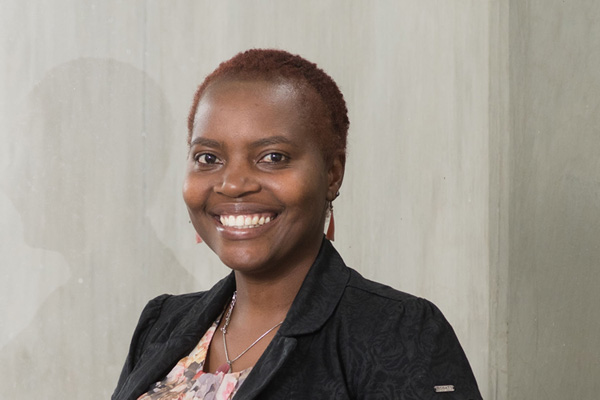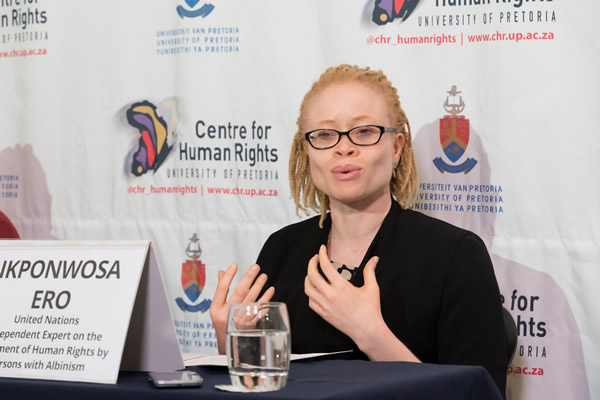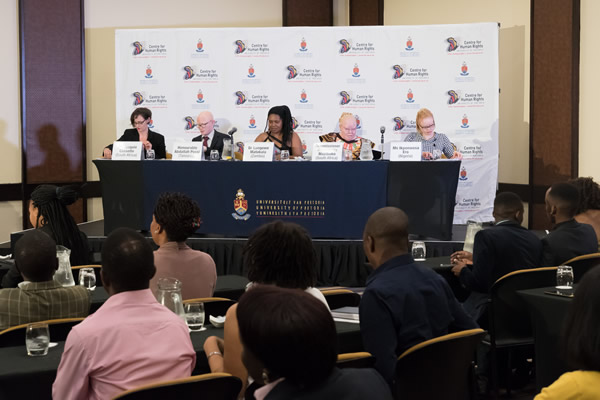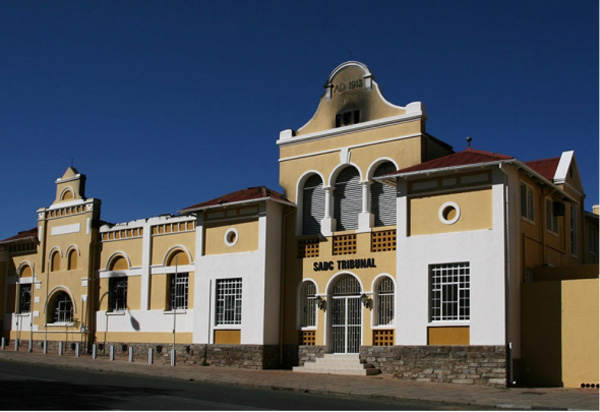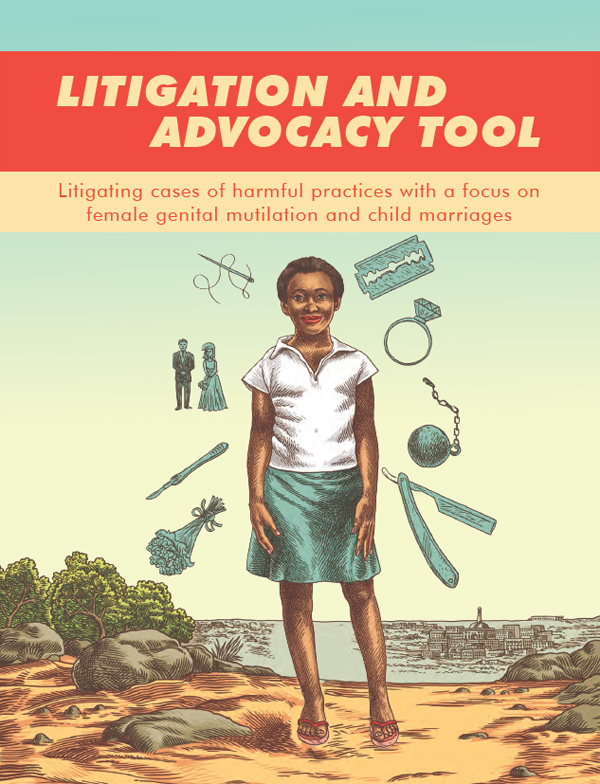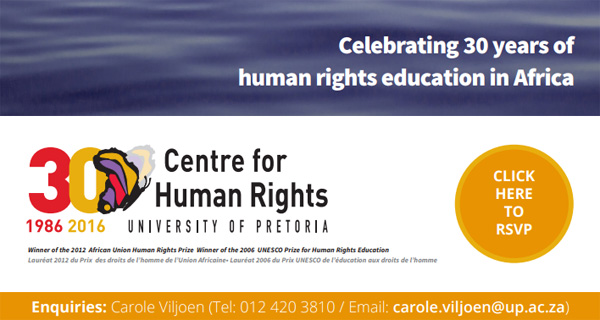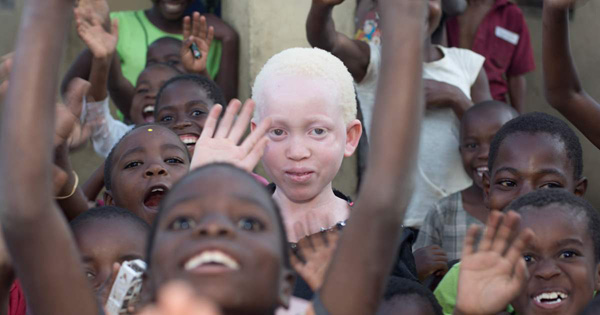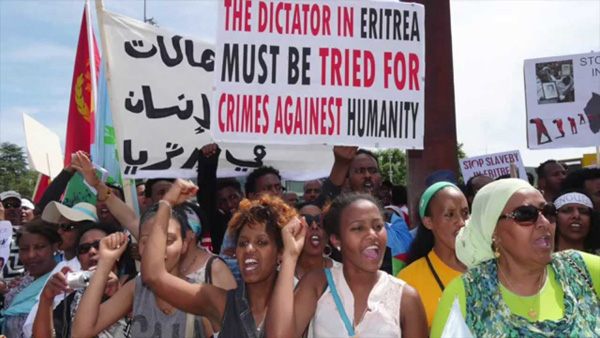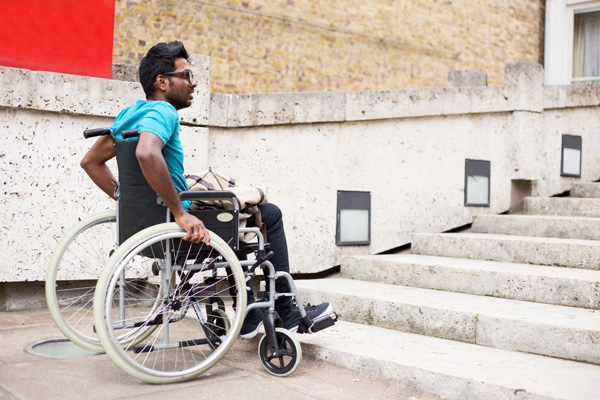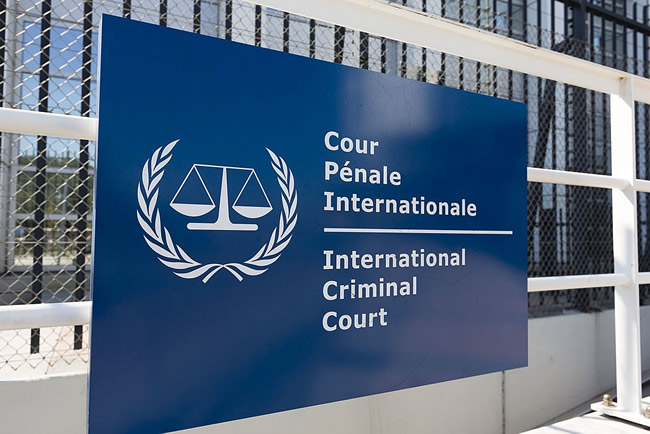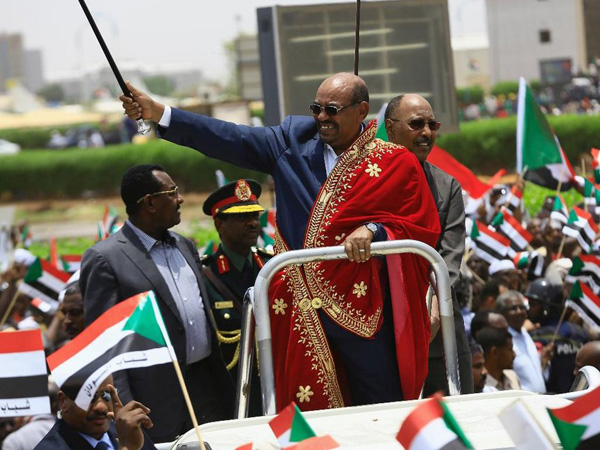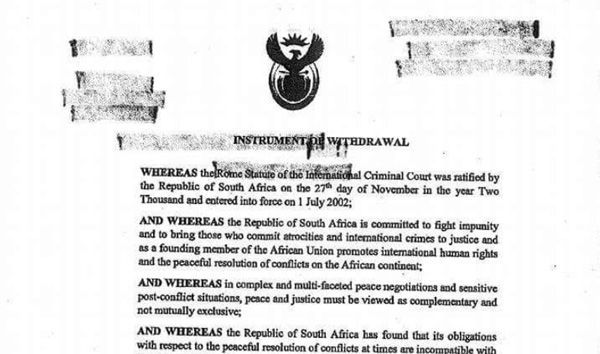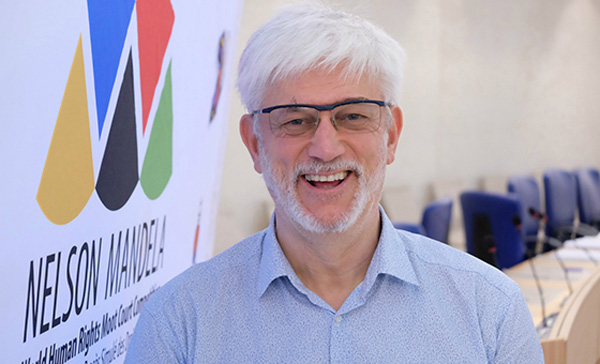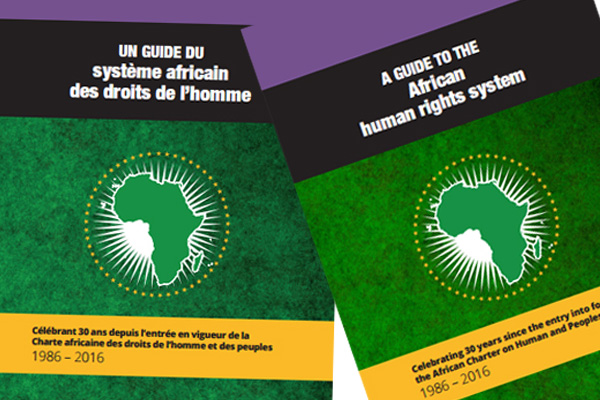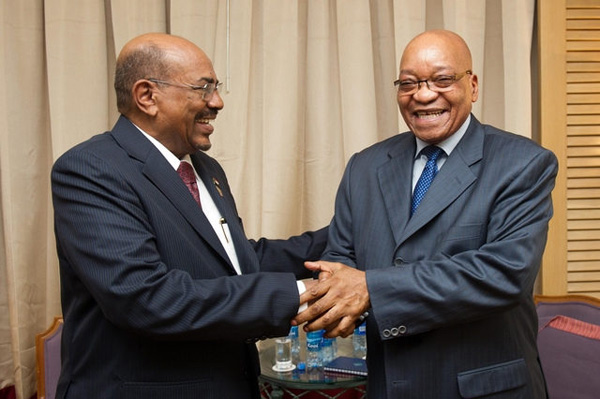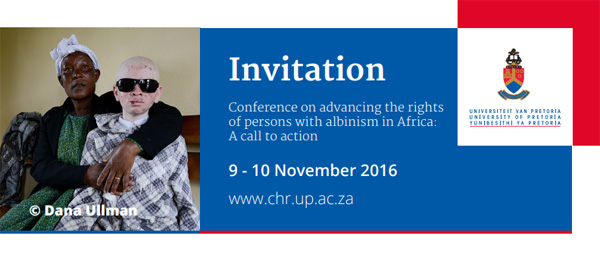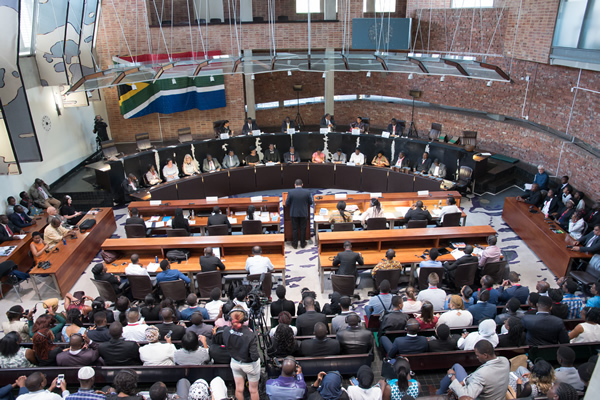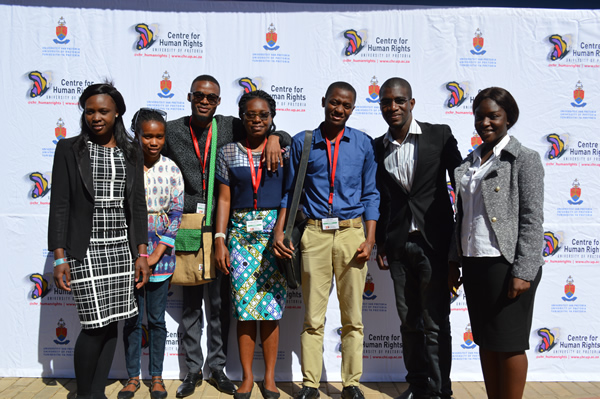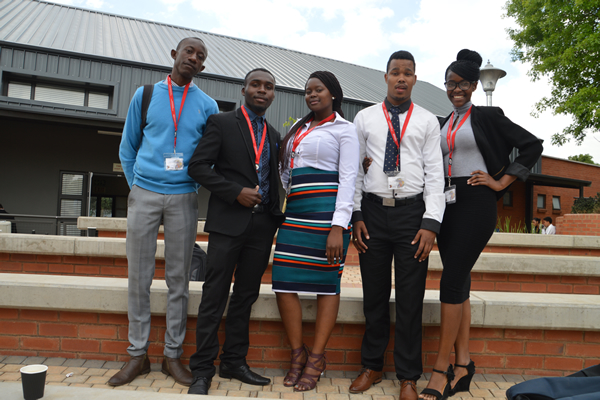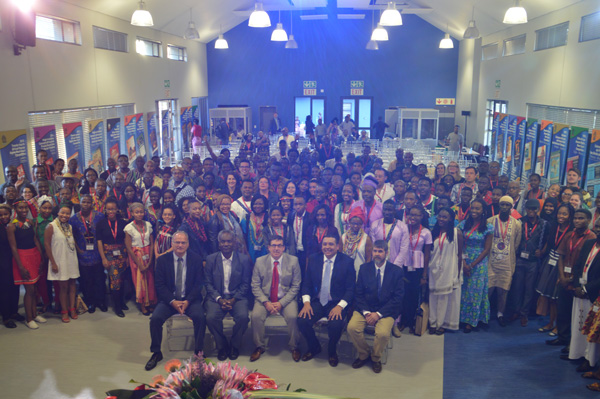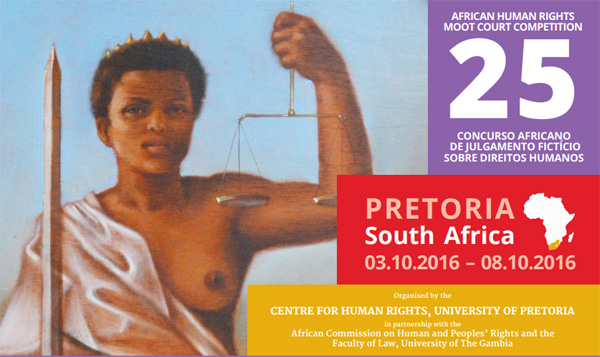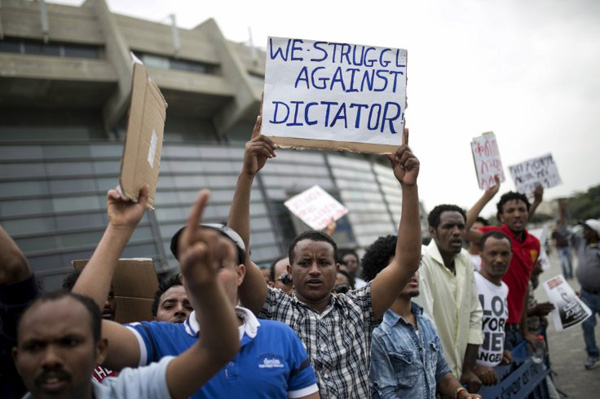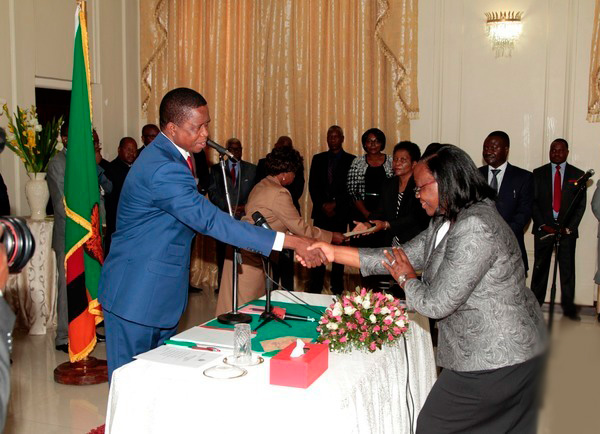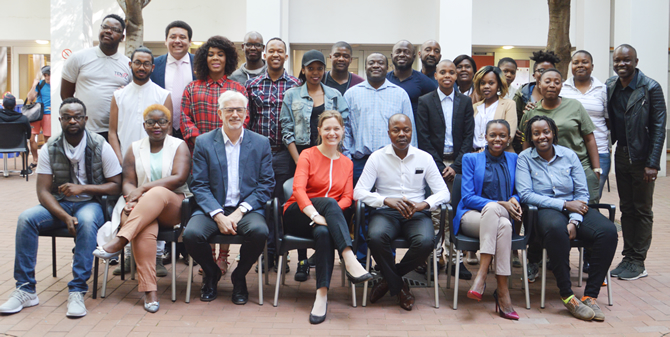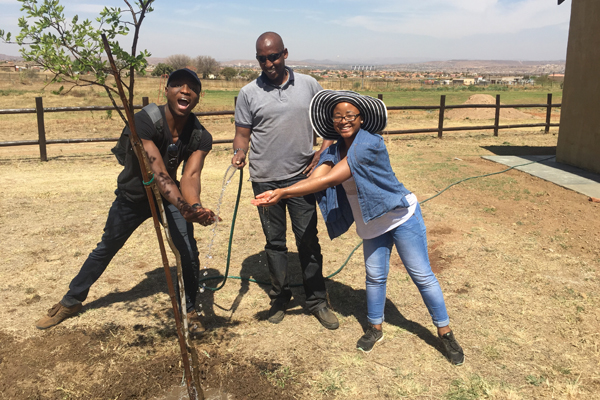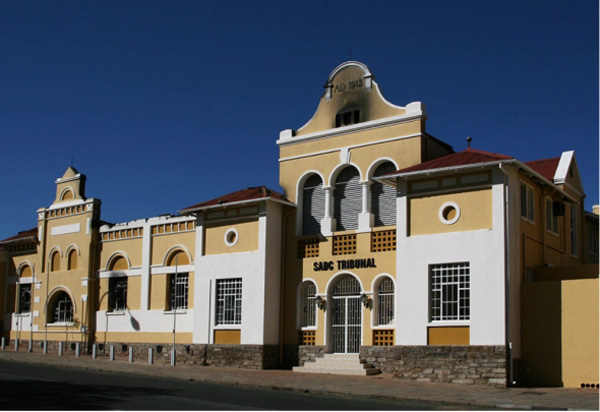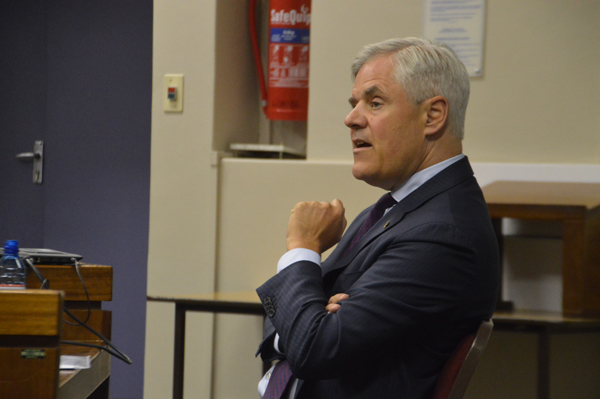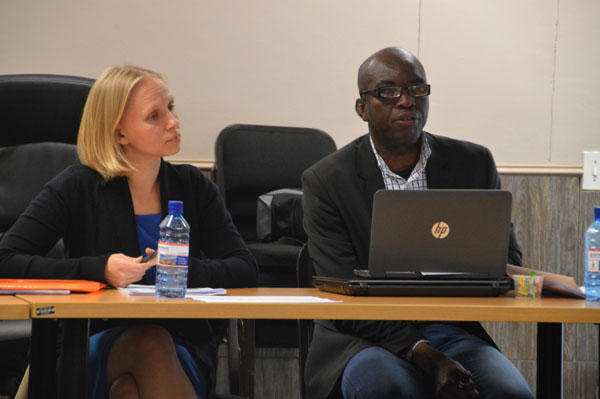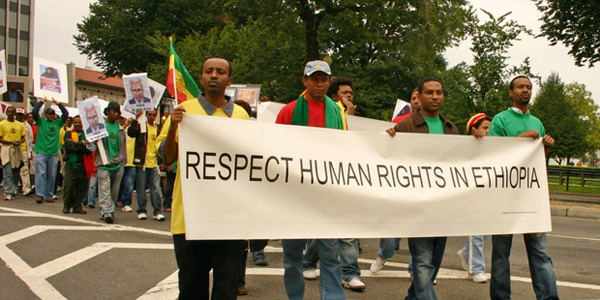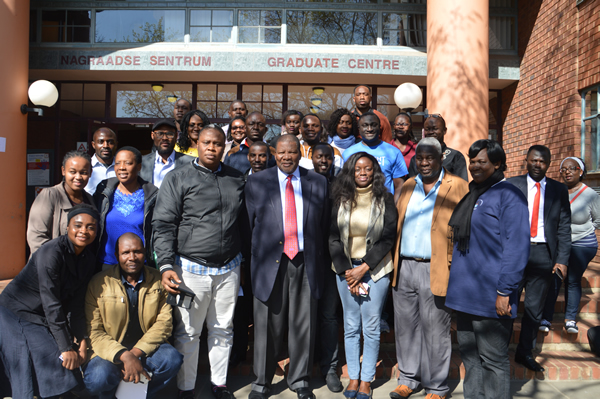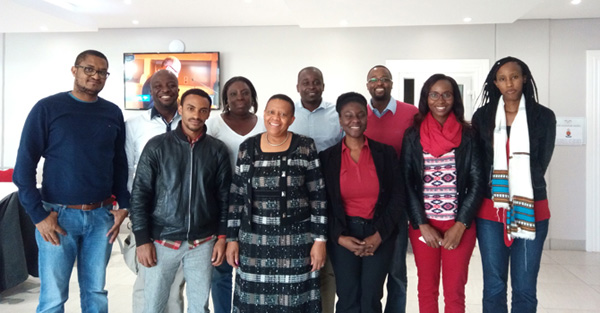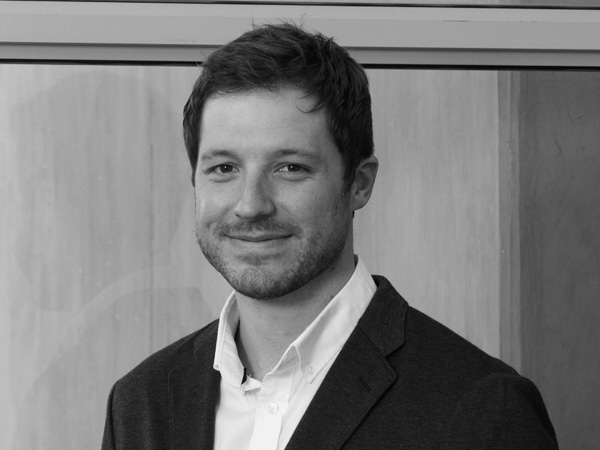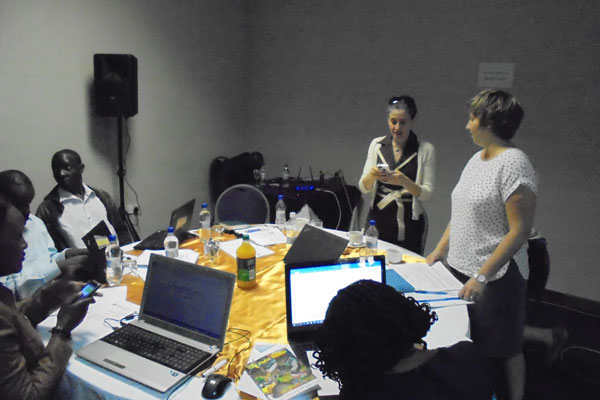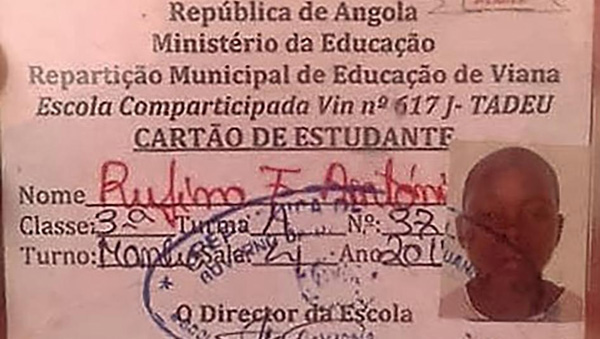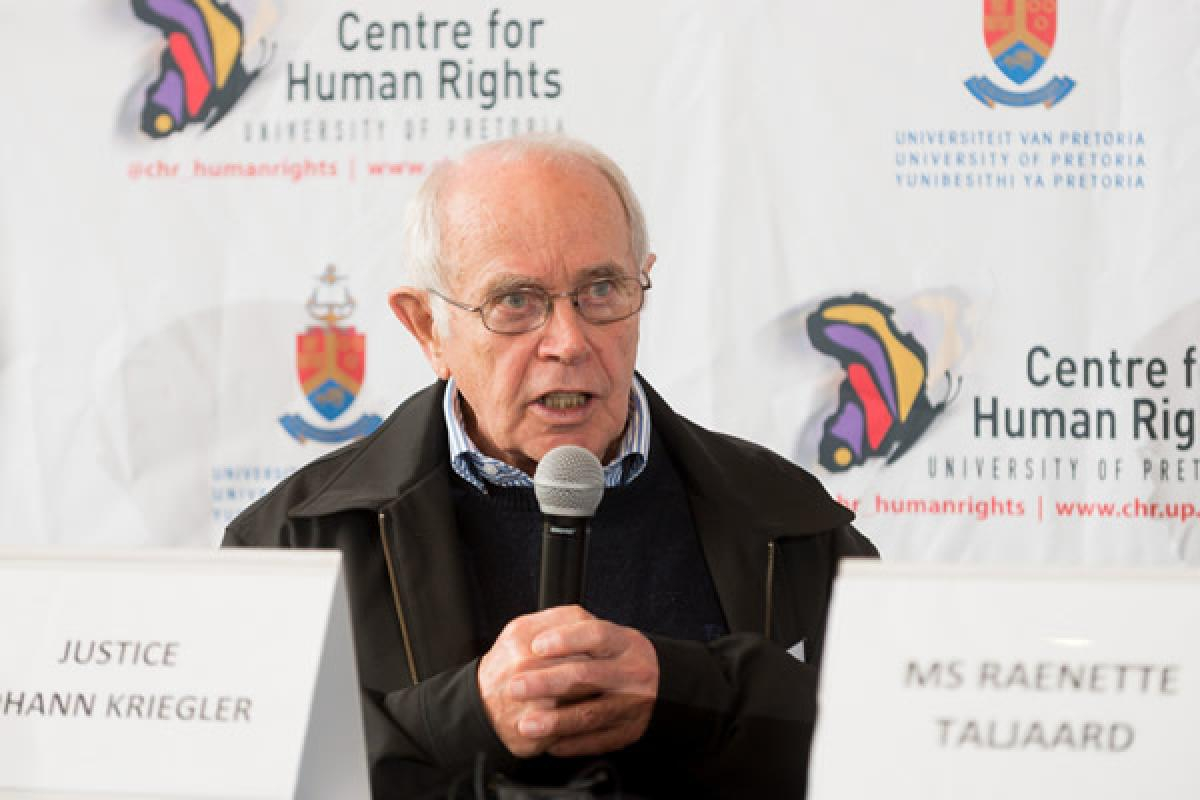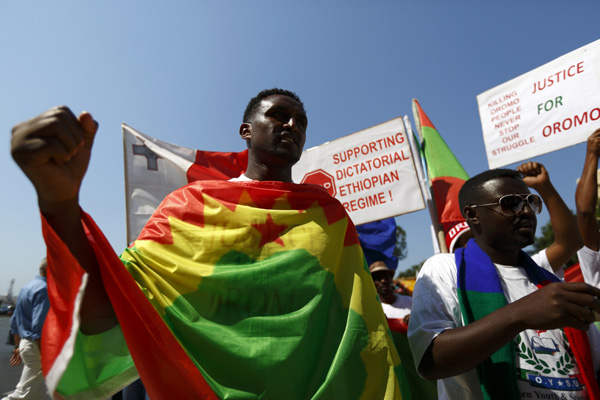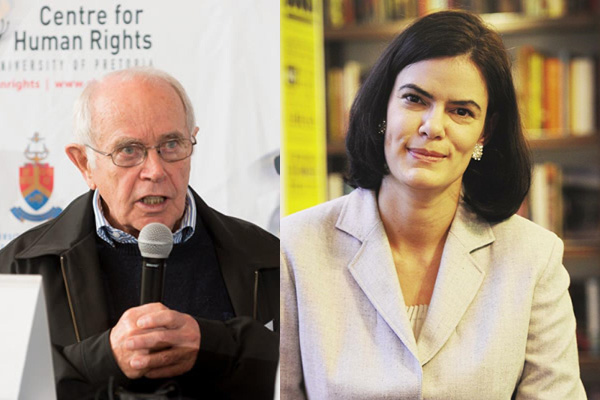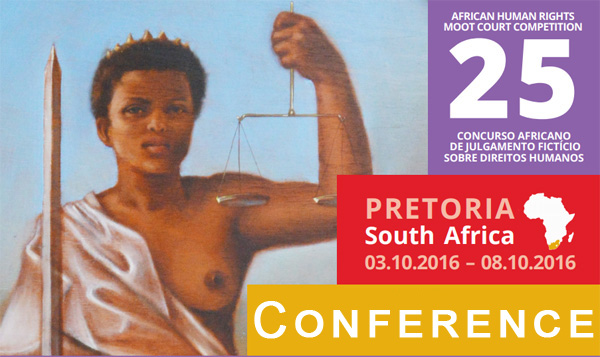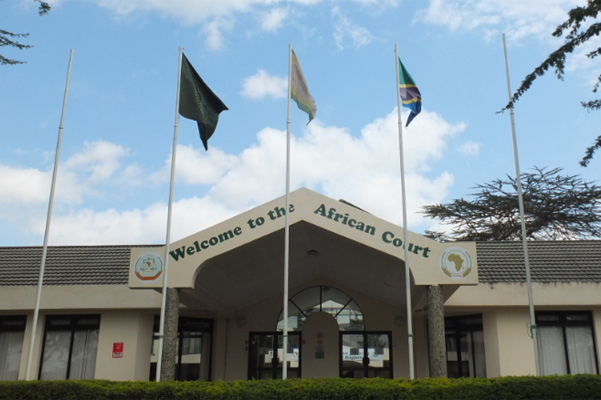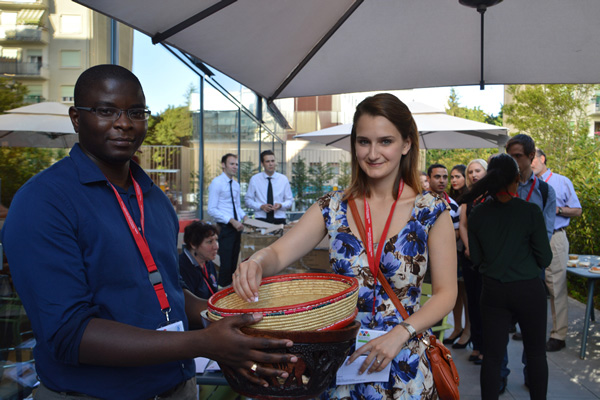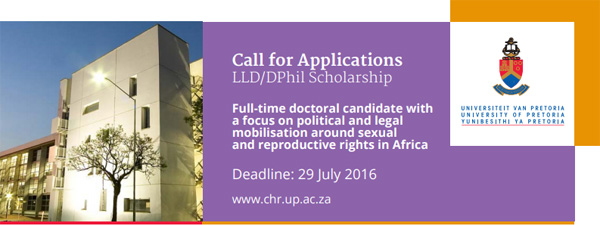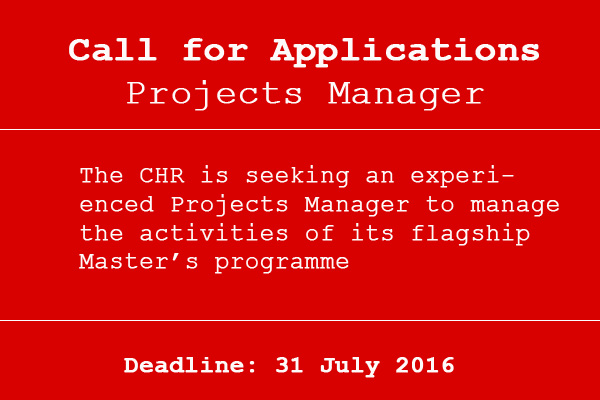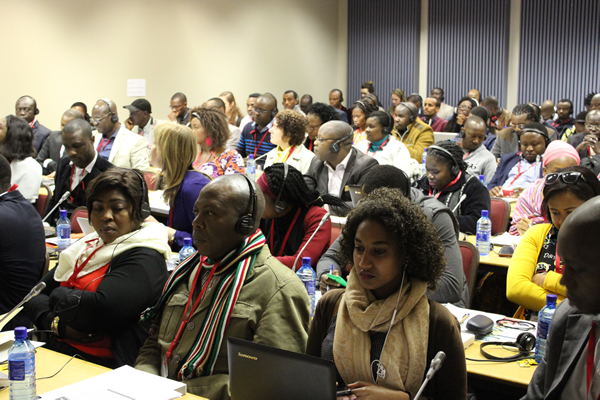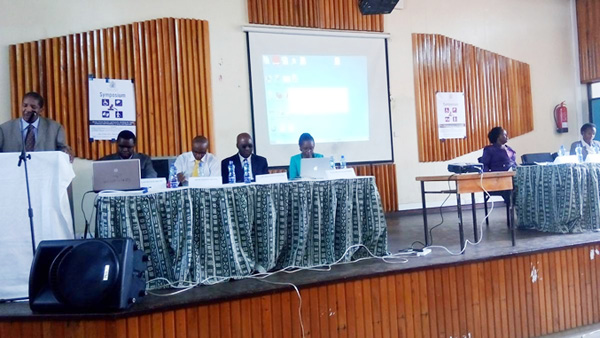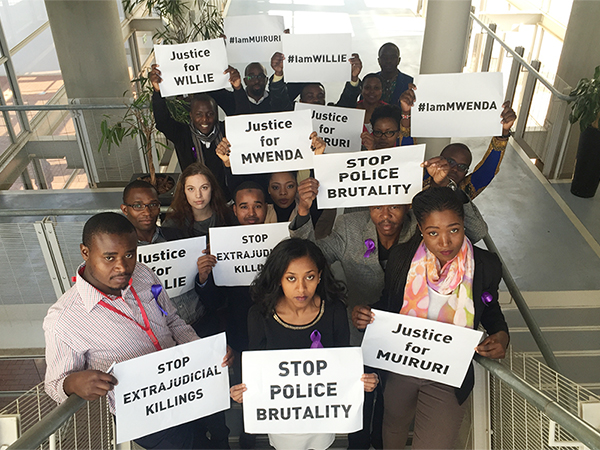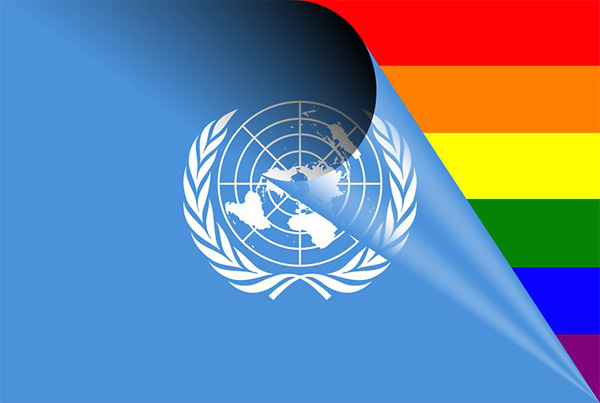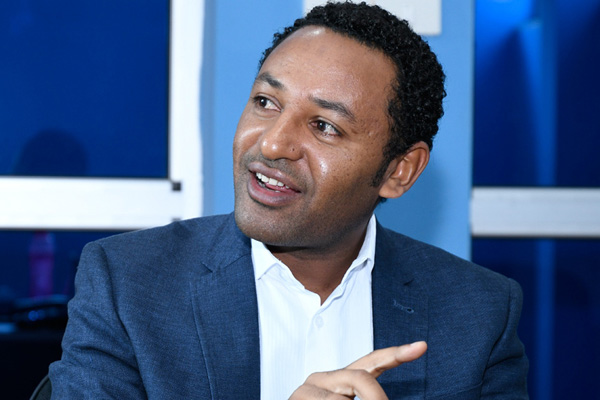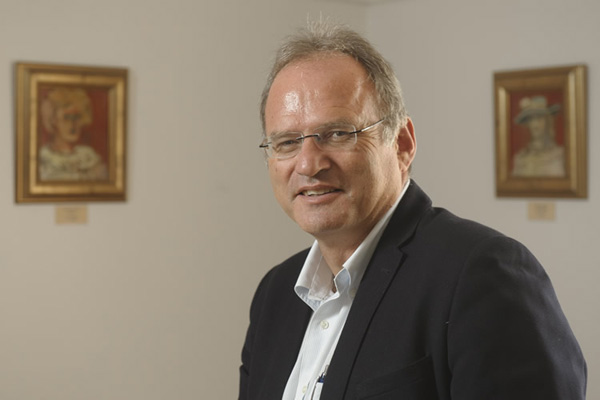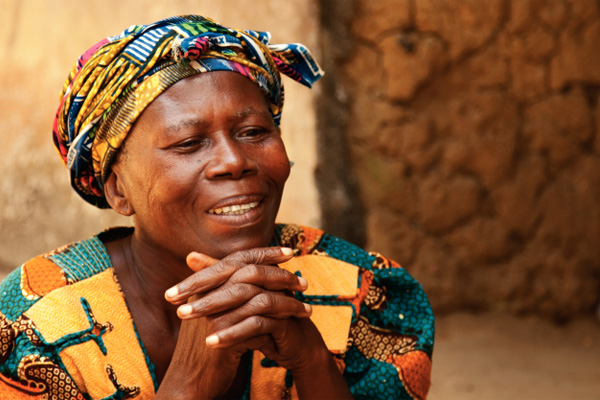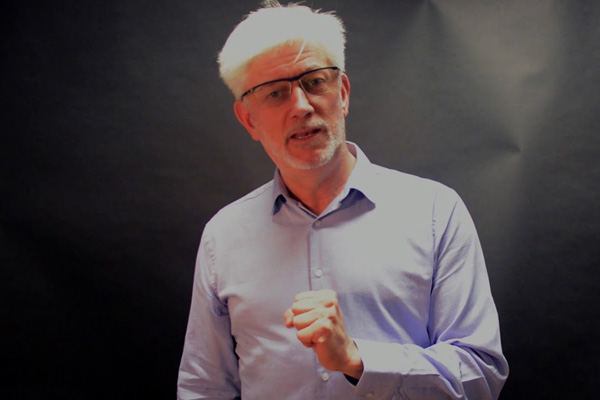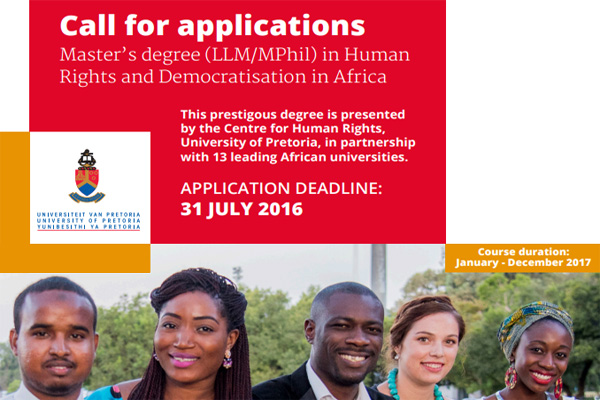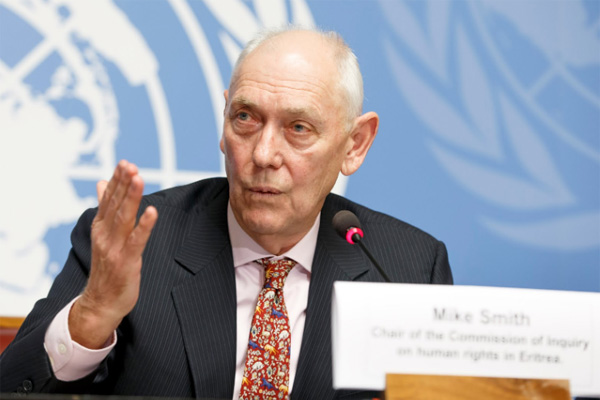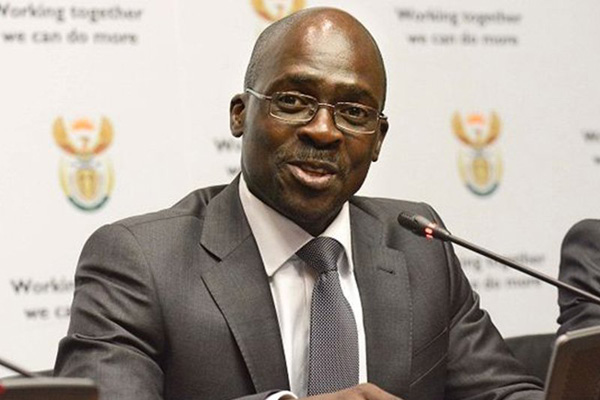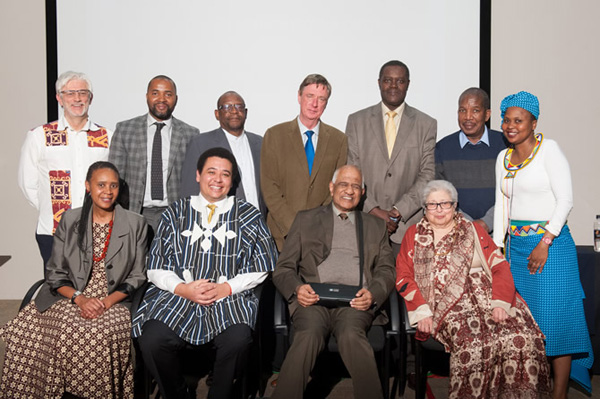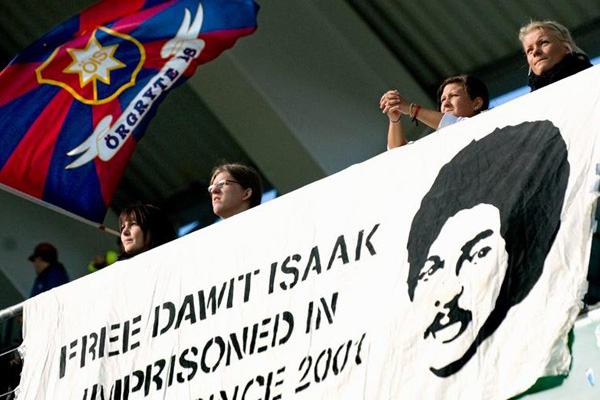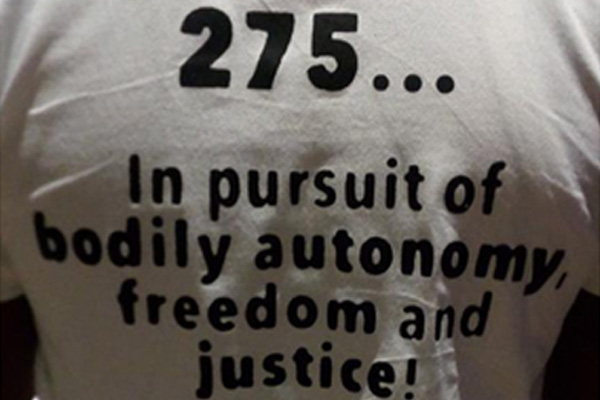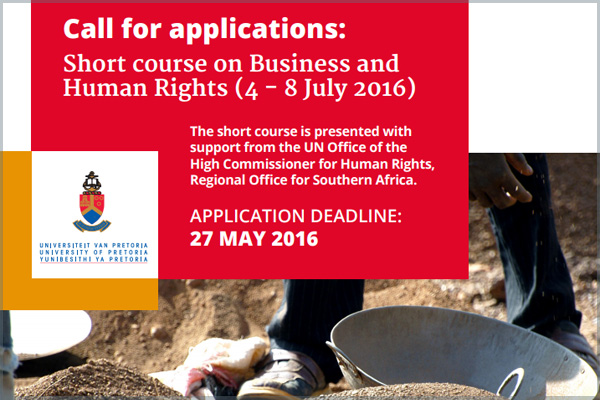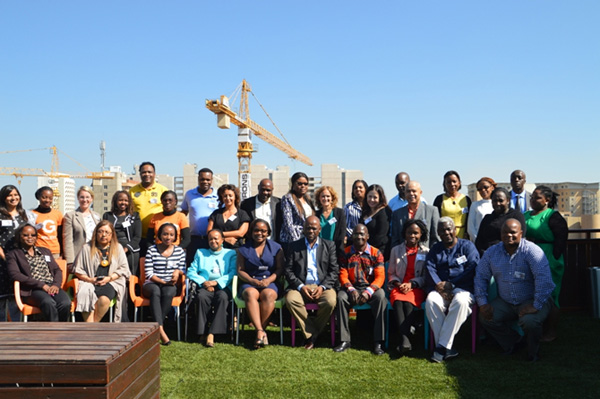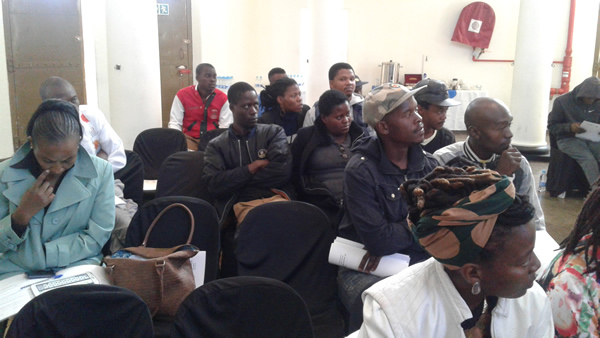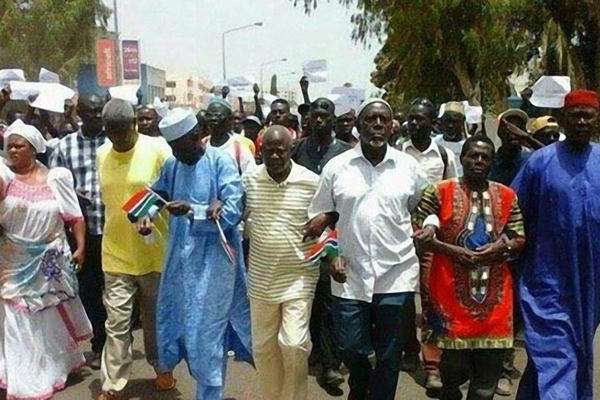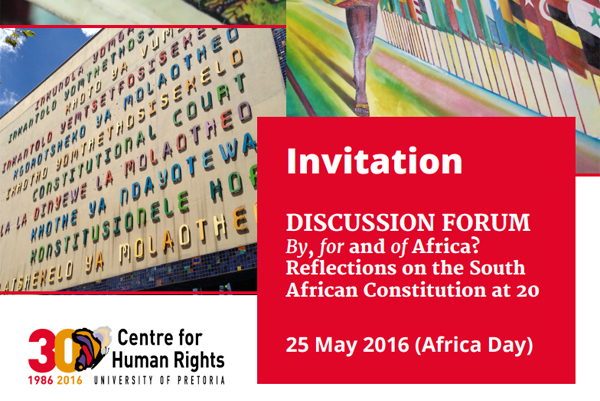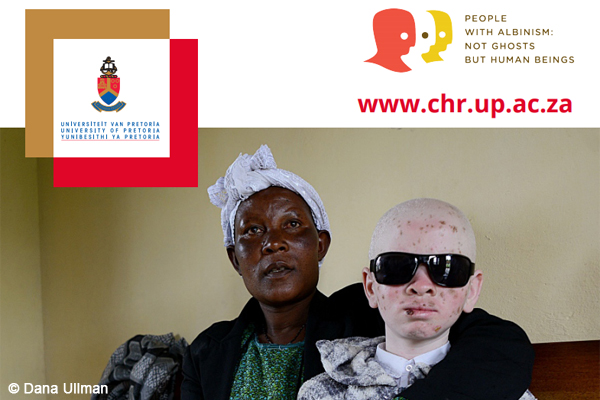- Details
The Centre for Human Rights, Faculty of Law, University of Pretoria, is deeply concerned about the deteriorating human rights situation in the North West and South West regions of Cameroon (English-speaking Cameroon), including reported arbitrary arrests, abductions, extra-judicial killings, involuntary disappearances, rape, torture and inhumane treatment of detainees, trial of civilians by military tribunals, shut down of internet services and the shutdown of schools (since November 2016).
![]() Download this press statement
Download this press statement
![]() Download the ADISI-Cameroon Report (Summary)
Download the ADISI-Cameroon Report (Summary)
- Details
The Centre for Human Rights works for the improvement of the human rights of minorities - including sexual minorities - and other disadvantaged or marginalised persons or groups across the continent.
Funded by the Royal Netherlands Embassy in Pretoria, the Centre's SOGIE Unit focuses on education, capacity-building, advocacy and legal aid in the area of LGBTI rights and anti-discrimination. This poster highlights great South Africans who identify as LGBTI persons, who are leaders in their field, and whose work contributes to the realisation of sexual minority rights in South Africa.
Download the LGBTI icons poster
- Details
The Centre for Human Rights, Faculty of Law, University of Pretoria, together with the Oliver & Adelaide Tambo Foundation cordially invites you the Oliver Tambo Centenary Lecture Series. The first edition of this series of lectures will be delivered by Justice Albie Sachs, Retired Judge of the Constitutional Court of South Africa.
- Details
The Centre for Human Rights, University of Pretoria, notes with regret that the Tanzanian government has ordered the arrest of three men accused of ‘promoting’ homosexuality through social media. This action by the Assistant Minister of Health Hamisi Kigwangalla is a violation of human principles contained in the constitution of Tanzania international human rights treaties which Tanzania is party to.
- Details
The Centre for Human Rights, Faculty of Law, University of Pretoria, together with the Embassy of the Sahrawi Arab Democratic Republic, cordially invites you to a brown bag lunch-hour panel discussion on the right to self-determination of the Sahrawi people.
- Details
‘One world; one people’. This is how Advocate Kevin Malunga, South Africa’s Deputy Public Protector, described those who inhabit Africa, as he welcomed Master’s students from all over the continent to the Centre for Human Rights at the University of Pretoria on Friday 3 February 2017. Presenting the keynote address under the theme ‘Thoughts on the African lawyer’s role in globalising the rule of law, integrity and economic advancement and justice’, Advocate Malunga challenged students to become ‘rebels with a cause’.
- Details
The Centre for Human Rights, Faculty of Law, University of Pretoria is shocked and horrified at the findings of the Health Ombudsman, Professor Malegapuru Makgoba, following an investigation into the circumstances in which more than 94 persons with mental disabilities died between 23 March and 19 December 2016 in Gauteng Province.
- Details
The Centre for Human Rights, Faculty of Law, University of Pretoria cordially invites you to a seminar on the EU in Africa.
Human rights, democracy and rule of law are high on the agenda in the relations between the European Union (EU) and Africa. However, despite slogans like ‘2 unions, 1 vision’ there are many deeply contested issues between the two regional blocs. This seminar that is held in the framework of the project ‘Fostering for Human Rights among European Policies’ (Frame) explores visions, practice and scenarios for the future of the EU’s relationship with Africa.
- Details
With the inauguration of the President-elect of The Gambia scheduled for 19 January 2017, the situation in that country is of grave concern to us, as it is to many fellow Africans.
- Details
The University of Pretoria wishes to invite applications for the following vacancy at the Centre for Human Rights (an academic department and a non-governmental organisation at the University).
- Details
3 December 2016 marked the 24th anniversary of the International Day of Persons with Disabilities. Currently, around one billion people live with a disability, making up 15% of the world’s total population.
The Open Society Foundation (OSF) supports the implementation of Disability Rights education in selected law faculties in Africa. In pursuance of this vision, the Centre for Human Rights (CHR), Faculty of Law, University of Pretoria in collaboration with the Disability Unit, embarked upon a support visit to the University of Zambia (UNZA) in efforts to advance inclusive policies and practices.
- Details
The Vera Chirwa Human Rights award recognises the outstanding professional achievements of a graduate of the HRDA Masters programme, and one who epitomises the true African human rights lawyer. They would have made a significant contribution to human rights promotion and protection in Africa; they would have demonstrated a courageous and unwavering commitment to improving the lives of people in Africa; and their achievements will bear the hallmarks of dynamism, originality, and a pioneering spirit.
- Details
On the eve of International Human Rights Day, the Centre for Human Rights held its annual graduation ceremony. This year’s event, which took place on 9 December 2016, was very special for a number of reasons.
The first reason is that the first graduates of the first fully-fledged hybrid Master’s programme presented by the Centre received their degrees at this Ceremony. This Master’s programme, focusing on “Sexual and Reproductive Rights in Africa”, brings together students from all across the continent in a combination of on-line and on-campus teaching and learning.
- Details
In a recent Colloquium of graduates of the Centre for Human Rights, participants agreed that the greatest challenges for human rights in Africa lie in the effective implementation of rights, and the independent functioning of institutions. This event, which took place on 8 December 2016, brought together some hundred current Centre Master’s students and graduates of its various programmes under the theme “How far have we come; where do we go from here?”
- Details
The African Disability Rights Yearbook (ADRY) is calling for papers for consideration for publication in 2017.
The ADRY publishes once a year with a focus on disability rights issues and developments of contemporary concern to persons with disabilities on the African continent. It comprises three sections – Section A containing doctrinal articles and for which we are calling for papers; Section B containing country-focused overviews of developments in disability rights in selected African countries; and Section C containing brief overviews of developments at the
African regional and sub-regional levels.
- Details
As we recently observed the International Day of Persons with Disabilities, we have reason to see the glass as half-full. In the past ten years, there has been a discernible shift towards raising the profile of disability in our human rights systems. The adoption of the Convention on the Rights of Persons with Disabilities (CRPD) by the United Nations General Assembly in 2006 was a pivotal event at the global level. Conceptually, the CRPD is paradigm-setting; it constitutes a shift not just from a charity model of disability to a rights-based social model, but also in the way we look at disability.
- Details
During 2016, the Centre for Human Rights, University of Pretoria is celebrating its 30th anniversary, coinciding with the entry into force of the most important human rights treaty on the continent, the African Charter on Human and Peoples’ Rights. This year is also the African Union’s Year of Human Rights (with a focus on women’s rights) as well as the 20th anniversary of the South African Constitution.
Over the past 30 years, the Centre’s academic programmes, projects and partnerships have focused on the African regional human rights system, with the African Charter at its core. The Master’s programme in Human Rights and Democratisation in Africa, in particular, with its 14 partner faculties across the continent, and 456 graduates around the continent and beyond, has seen a convergence between the agendas of the Centre and the African human rights system.
- Details
During 2016, the Centre for Human Rights, University of Pretoria, is celebrating its 30th anniversary, coinciding with the entry into force of one of the most important human rights treaties on the continent, the African Charter on Human and Peoples’ Rights.
This year is also the African Union’s Year of Human Rights (with a focus on women’s rights) as well as the 20th anniversary of the South African Constitution.
- Details
The Centre for Human Rights, University of Pretoria recently established a Sexual Orientation and Gender Identity and Expression (SOGIE) Unit.
Have you or someone you know suffered discrimination, hate speech or harassment? We will help you for FREE!
We offer legal advice, facilitate mediation and may represent you in the Equality Court.
- Details
Reflections on a visit to Chancellor College, University of Malawi as part of the Disability Rights Law Schools Project
When we turned off the main tarmac road into the villages, we were faced with a rocky dirt road. For a while it seemed like our car was no match for the rugged terrain with the wheels churning a huge spray of dust and the engine struggling and coughing violently as we chugged along. Shortly thereafter, we crossed a narrow bridge and with a spirited lurch we were on our way. The bumpy and long drive through scattered mud huts, grazing goats and waving children brought us to our destination, Ntungulutsi Primary School in Chingale. We were greeted by the sight of school children singing and dancing, their laughter filling the air as their parents chatted away.
- Details
The Sexual Orientation and Gender Identity and Expression Unit (SOGIE) of the Centre for Human Rights conducted a ‘Sexual minority rights in Africa training and dialogue’ from 23 Nov to 25 Nov 2016 at the Holiday Inn Express Hotel in Pretoria.
The aim of the training and dialogue was to train and dialogue with government department officials, the police, national human rights institutions, human rights NGO workers, and LGBTI activists on the human rights of sexual minorities (lesbians, gays, bisexuals, transgender persons, and intersex persons) in Africa, basing on the African Charter on Human and Peoples’ Rights. The change expected is that relevant government departments and NGOs will put more effort in enabling the rights of sexual minorities through the right policies, domestic laws, action and advocacy plans.
- Details
The past ten years have ushered in a new sense of urgency in efforts to change the quality of life of persons with disabilities in Africa. The African Union and its agencies have made various efforts towards ensuring the rights of persons with disability including through developing an Africa-specific protocol for persons with disabilities.
The Department of Social Affairs of the African Union hosted a validation workshop on the Draft Protocol to the African Charter on the Human and Peoples’ Rights on the Rights of Persons with Disabilities in Africa from the 29 – 30 November in Addis Ababa, Ethiopia.
- Details
South Africa is a country that is so diverse and heterogeneous that the term rainbow nation was coined by the late President Nelson Mandela to describe it's characteristics under the new democratic dispensation. The term however does not only apply to the different races that inhabit this great land, but also extends to the diverse cultures, nationalities, religious and political affiliations, sexual orientations and gender identities, and expressions of South Africans and their other non-South African fellow inhabitants.
- Details
Gender inequalities are at the heart of rape culture in South Africa and without conscious, sustained and deliberate efforts to dismantle them, the problem will prevail. Gender equality should be understood in a much broader frame than just the equal treatment of all human beings regardless of gender, extending to include the need for creating an enabling social and institutional environment for all women and all men to be able to access equal rights, responsibilities and opportunities. Inequalities are not just expressed in our beliefs, attitudes and actions, but are entrenched within social structures and institutions to maintain and reinforce the superiority of one gender over another.
- Details
Violence and discrimination against persons with albinism as well as trafficking and cross-boarder sale of their body parts continues to be a worrying trend on the continent.TheIndependent Expert on the Enjoyment of Human Rights by Persons with Albinism, Ms. Ikponwosa Ero in her report to the Human Rights Council earlier this year reported that over 500 cases of violence against persons with albinism including murder and mutilation have been reported in 26 African countries, since 2006. It is believed that a majority of cases go unreported due to the secrecy of witchcraft and other harmful practices which serve as the context of most of these attacks.
- Details
The Centre for Human Rights, in partnership with Open Society Foundations and the United Nations Independent Expert on the enjoyment of human rights by persons with albinism, held a high-level meeting on 8 November 2016. This meeting formed part of a number of events that focused on advancing the rights of persons with albinism in Africa.
The meeting was convened by the UN Independent Expert on the enjoyment of human rights by persons with albinism, Ikponwosa Ero, who was grateful to all stakeholders for making the forum a reality at such short notice. The meeting brought together high-level stakeholders from the United Nations, the African Union, government, diplomats, civil society including academia and leaders of organisations representing persons with albinism.
- Details
From 7 to 10 November 2016 the Centre for Human Rights, with the support of Open Society Foundations, hosted the Fourth African Disability Rights Moot Court Competition. Participants from the Network of Law Schools Disability Rights Programme participated in the fourth edition of this competition.
The problem that was argued during the rounds concerned itself with issues regarding the rights of persons living with albinism.
- Details
On 18 November 2005, the Southern African Development Community Tribunal (SADC Tribunal) was inaugurated. It was established to hear disputes of not only Southern African states but also of their citizens. This was a momentous occasion given that a regional court with the power to hear human rights cases is a critical mechanism in the pathway to justice after exhaustion of local remedies. However, instead of this week celebrating the 11th anniversary of this progressive mechanism, we mourn its demise.
![]() Download this statement
Download this statement
![]() Download the Media Advisory
Download the Media Advisory
![]() Download the 'Week of Mourning' flyer
Download the 'Week of Mourning' flyer
- Details
The Centre for Human Rights, University of Pretoria and Equality Now, in collaboration with the Solidarity for African Women’s Rights Coalition developed a tool on harmful practices: Litigation and Advocacy Tool: Litigating cases of harmful practices with a focus on female genital mutilation and child marriages.
The tool is also available in French: Manuel relatif aux droits de la défense dans le cadre d'un contentieux: Guider les litiges et plaidoiries qui se focalisent sur mettre fin aux pratiques nocives en Afrique, l’accent étant mis sur la mutilation génitale féminine et le mariage d’enfants.
- Details
The Centre for Human Rights, University of Pretoria cordially invites you to the Graduation Ceremony for the 2016 Master’s degree students.
Date: Friday 9 December 2016
Time: 14:00 – 17:00
Venue: Musaion, University of Pretoria, Hatfield Campus, Hillcrest, Pretoria
- Details
The Centre for Human Rights, University of Pretoria cordially invites you to the 30/30 Colloquium: How far have we come; how far will we go?
Date: Thursday 8 December 2016
Time: 08:00 – 16:00
Venue: Hellenic Community Hall, Corner Lynnwood road & Roper street (opposite UP), Hillcrest, Pretoria
- Details
(Pretoria, South Africa) An action plan to combat attacks and discrimination against people with albinism in Africa is a critical priority for governments and civil society on the continent, declared the United Nations Independent Expert on the enjoyment of human rights by persons with albinism, Ikponwosa Ero, following the High-Level Meeting on Persons with Albinism in Africa.
- Details
The United Nations Independent Expert on the enjoyment of human rights by persons with albinism, Ikponwosa Ero, will make an important announcement immediately following the High-Level Meeting on Persons with Albinism in Africa.
- Details
GENEVA (28 October 2016) – States must heed the pleas of countless victims of crimes against humanity for justice and accountability, Sheila Keetharuth of the former UN Commission of Inquiry on human rights in Eritrea urged the UN General Assembly. The Commission has recommended that the situation in Eritrea be referred to the International Criminal Court.
Speaking for the Commission of Inquiry, Keetharuth, who is also UN Special Rapporteur on the situation of human rights in Eritrea, highlighted the Commission’s clear findings that crimes against humanity have been committed since 1991 by Eritrean officials, adding that such a dire assessment left no room for “business as usual” in the international community’s engagement with the Government of Eritrea.
- Details
The Centre for Human Rights, University of Pretoria is calling for applications for two Open Society Foundations scholarship programmes: the Disability Rights Scholarship Programme and the Inclusive Education Scholarship Programme.
About the Disability Rights Scholarship Programme
The Disability Rights Scholarship Programme provides awards for master’s degree study to disability rights advocates, lawyers, and educators to develop new legislation, jurisprudence, policy, research, and scholarship to harness the innovations and opportunities offered by the United Nations Convention on the Rights of Persons with Disabilities (CRPD).
- Details
The Centre for Human Rights expresses its grave disappointment at the news of the entry of an instrument of withdrawal from the Statute of the International Criminal Court by the South African Minister of International Cooperation and Development.
It should be recalled that South Africa ratified the ICC Statute though a parliamentary process. It is our firm view that it is contrary to the spirit of our democratic Constitution for such a consultative, inclusive and democratically-based decision to be undone through a unilateral act by a single government department, acting for the executive. The South African Constitutional Court has emphasised that ours is a participatory democracy, not a democracy where the electorate cedes authority to the executive to govern without its continued involvement. Whenever it is possible, participation and inclusion should be chosen above executive fiat.
- Details
Sudan's President Omar al-Bashir waves to supporters during a rally against the International Criminal Court after arriving from Ethiopia, at Khartoum Airport in Sudan, July 30, 2016. /REUTERS
South Africa is withdrawing from the Rome Statute which established the International Criminal Court (ICC). The Minister of International Relations and Cooperation, Maite Nkoana-Mashabane, signed the Instrument of Withdrawal on 19 October, following a cabinet decision.
It is a sad day for South Africa. It is a sad day for Africa. Why did it come to this?
The minister states that the reason for the withdrawal is that:
[South Africa] has found that its obligations with respect to the peaceful resolution of conflicts at times are incompatible with the interpretation given by the International Criminal Court.
- Details
The Centre for Human Rights, Faculty of Law, University of Pretoria deplores the decision of the South African government to withdraw from the International Criminal Court Statute.
This is a developing story and the Centre for Human Rights will release an official statement on the matter.
- Details
Monday 17 October was the first working day for Advocate Busisiwe Mkhwebane, our new Public Protector. President Zuma formally appointed her to the position; she is set to serve her seven-year term. (This is the second Public Protector President Zuma has appointed; he also appointed Thuli Madonsela in 2009.) Parliament overwhelmingly supported her; and civil society organisations such as Corruption Watch endorsed her
If some concerned South Africans still view Busisiwe Mkhwebane’s appointment with some apprehension, it would be up to her to set suspicious minds at ease. Her actions would confound her critics. Regrettably, there indeed seems to be some cause for caution.
- Details
As part of the African Union (AU) Year of Human Rights, the Centre for Human Rights (Faculty of law, University of Pretoria) compiled a publication tracking the historical evolution and providing an overview of the African human rights system.
This publication, A guide to the African human rights system Celebrating 30 years since the entry into force of the African Charter on Human and Peoples’ Rights 1986 - 2016, was launched during the African Human Rights Moot Court Competition, which took place in Pretoria from 3 to 8 October 2016. This year the Moot celebrated its silver jubilee, as the Centre has been hosting it for the last 25 years – without interruption. Fifty nine universities from all over Africa participated in the 2016 edition of the Moot. The Moot Court Competition has indeed been integral to much of the Centre’s 30 years of existence, another landmark acknowledged this year.
- Details
On 28 September 2016, the Peace and Justice Initiative and the Centre for Human Rights (“PJI/CHR”), represented by the Legal Resources Centre (“LRC”), were jointly admitted as amici curiae (friends of the court) in the matter of the Minister of Justice and Constitutional Development and Others v. Southern Africa Litigation Centre (CCT 75/16) (“Al-Bashir Case”) before the Constitutional Court of South Africa (“Court”). Yesterday, on 13 October 2016, PJI/CHR filed joint heads of argument in this matter, which can be accessed here, with the aim of utilising PJI/CHR’s collective domestic and international law experience to assist the Court in reaching its decision.
- Details
The Centre for Human Rights, Faculty of Law, University of Pretoria cordially invites you to a conference on advancing the rights of persons with albinism in Africa which will be presented from 9 to 10 November 2016.
![]() Download this invitation
Download this invitation
![]() Download the final conference programme
Download the final conference programme
- Details
The final round of the 25th African Human Rights Moot Court Competition was held at the Constitutional Court of South Africa on Saturday 8 October 2016. The finalist teams consisted of the top Francophone, top Lusophone and two top Anglophone teams who emerged from the preliminary rounds that were held on 3 and 4 October. Appearing for the Applicant team were Stellenbosch University, South Africa and Institute Universitaire d’Abijan, Côte d'Ivoire and arguing for the Respondent team were Makere University, Uganda and the Universidade Eduardo Mondlane, Mozambique.
- Details
To commemorate 30 years since the entry into force of the African Charter, 10 years since the African Court became operational and 30 years of the Centre for Human Rights, University of Pretoria; a special conference was held on Friday 7 October 2016 as part of the African Human Rights Moot Court competition.
The conference coincides with the 25th anniversary of the Moot Competition organised by the Centre for Human Rights, University of Pretoria in partnership with the University of The Gambia. The theme of this year’s conference is ‘The African Human Rights System @ 30: Taking stock, moving forward’.
- Details
Day 4 of the African Human Rights Moot Court Competition is usually set aside for an excursion to a prominent tourist destination in the host country. This year, the participants were taken to the ‘Sun City Resort’ in the North West Province in South Africa to spend the day at the ‘Valley of the Waves’. After breakfast at Holiday Inn Express, participants, faculty representatives, volunteers and organisers filled the buses and headed on a two-hour drive to Sun City.
- Details
Today’s event marked the second and final day of the preliminary rounds (Rounds III and IV). Participants were seen once again in their respective court rooms with the judges moderating the proceedings. Each team continued to argue their case for the Applicant and Respondent before different panels of judges.
After completing all the rounds, the final score sheets were collated and the results for all teams verified by Mr Edouard Jacot Guillarmod, an independent auditor.
- Details
At around 8am, the participants and faculty representatives arrived at the TuksSport High School in different shades of suits and corporate wears for the kick off of the preliminary rounds of the competition. The participants were ready to appear as legal counsels before hypothetical judges of the African Court on Human and Peoples’ Rights who were in fact the faculty representatives and lecturers from the participating universities.
- Details
The African Human Rights Moot Court Competition aims to advance the cause of human rights in Africa by providing an opportunity to law students from across the continent to prepare and argue a hypothetical case before human rights experts. This year marks the 25th edition of the competition and the issues being argued by students include:
- The legality of withdrawal from the African court’s jurisdiction by African states;
- Conditions of detention;
- Freedom of association; and
- Gender and human rights of women.
- Details
The Centre for Human Rights, Faculty of Law cordially invites you to the Opening Ceremony (3 October 2016) and the Final Round, Prize-giving and Closing Ceremony (8 October 2016) of the 25th African Human Rights Moot Court Competition.
- Details
GENEVA (16 September 2016) – The UN Special Rapporteur on the situation of human rights in Eritrea, Sheila B. Keetharuth, today called on the Eritrean Government to urgently provide information on the whereabouts and state of health of senior government officials and independent journalists arrested on 18 September 2001 and in the following days.
Fifteen years ago, the Eritrean authorities arrested and detained a group of senior cabinet ministers, members of parliament and independent journalists without charge or trial. To date, the Government has refused to share any information on their whereabouts and state of health.
“The Eritrean Government has denied those arrested their fundamental right to liberty and security of the person, right not to be subjected to torture, right to a fair trial as well as right to freedom of expression and opinion,” Ms. Keetharuth said ahead of the anniversary on Sunday. “Those arrested have been detained incommunicado and in solitary confinement. Even family members have never been allowed to have any contact whatsoever with them.”
- Details
Zambia has undertaken presidential and other elections on 11 August 2016. On 15 August 2016, the Electoral Commission of Zambia declared the incumbent Edgar Lungu the winner of the presidential election. However, presidential candidate Hakainde Hichilema has claimed that election results were manipulated by the Electoral Commission to favour the incumbent.
- Details
The failure of domestic law makes it important that the avenues of international law be explored. To achieve this objective, the Centre for Human Rights, University of Pretoria hosted a training for LGBTI human rights defenders on making effective use of the United Nations and African human rights systems.
- Details
On 2 September 2016 the Centre for Human Rights, University of Pretoria planted trees in to celebrate Arbor Week, which is held in the first week of September every year. Planting a tree is one of many ways in which we can build a sustainable environment and care better for our world. Centre staff travelled to Ya Bana Village for the children in Winterveld, North West of Pretoria, a place of safety for some 36 children. The children are cared for by house mothers in a set of beautiful homes on a vast well-kept ground. Centre staff was privileged to meet the founders and the staff of Ya Bana Village and observe the remarkable work they accomplish each day.
- Details
The Centre for Human Rights, University of Pretoria, is deeply concerned about the recent protests held by learners at the Pretoria High School for Girls challenging school policy that demanded them to straighten their hair. Even though the protests were aimed at questioning the school’s policy on hair and physical appearance, they obviously represented much more than that. The policy has highlighted an existing institutional culture of exclusion and a lack of appreciation for diversity not only within the school but also alerted us to the more pervasive culture of negating diversity at our educational institutions.
- Details
On the occasion of the 36th Summit of the Heads of State and Government of the Southern Africa Development Community (SADC Summit), we the undersigned members of the Coalition for an Effective SADC Tribunal, are raising serious concerns over state parties insistence in denying access to justice to the citizenry of this region as per the revised SADC Tribunal Protocol. The Protocol strips the Tribunal of its jurisdiction to hear complaints from individual citizens of SADC. This is inspite of the guaranteed right for people’s participation in the SADC Declaration and Treaty under Article 23.
- Details
The International Development Law Unit, Centre for Human Rights in collaboration with the ABSA Chair in Banking Law, Faculty of Law and the Economics Department, Faculty of Economics and Management at the University of Pretoria and the South African Institute for International Affairs hosted a public lecture by Dr Andreas Dombret, Member of the Executive Board, Deutsche Bundesbank on Tuesday 30 August 2016.
- Details
The Centre for Human Rights, University of Pretoria, hosted a colloquium on adolescent sexual and reproductive rights. The colloquium which focused on the theme Unmet adolescent sexual and reproductive needs in the African region: What can human rights do? was part of scholarly activities celebrating the Centre’s 30th anniversary. The theme of the colloquium was inspired by evidence of unfulfilled sexual and reproductive needs of adolescents across the African region.
- Details
The Centre for Human Rights, Faculty of Law, University of Pretoria, is deeply alarmed by the deteriorating human rights situation in Ethiopia, and especially, the arbitrary killing, arrest and detention of protesters.
- Details
The Advanced Human Rights Courses Programme (AHRC) held its annual short course on the right to development between 22 and 26 August 2016. The course aims to explore the content and scope of the right to development as enshrined in Article 22 of the African Charter as well as explore the challenges and opportunities of other international instruments in relation to development.
- Details
Back Row (From Left) Mr Ericino de Salema (Programme Director-AICE/IBIS, Mozambique), Mr Maxwell Kadiri ( Legal Officer-Open Society Justice Initiatives, Nigeria), Ms Wilhemina Mensah (Africa Regional Coordinator-CHRI, Ghana), Mr Gram Matenga (Senior Programme Officer-International IDEA, Ethiopia), Mr Jeggan Grey-Johnson (Advocacy and Communications Officer-AFRO-OSF, South Africa)
Front Row (From Left) Mr Abiy Ashenafi (Researcher-Centre for Human Rights, University of Pretoria), Ms Pansy Tlakula (Special Rapporteur on Freedom of Expression and Access to Information in Africa-ACHPR), Ms Olufunto Akinduro ( Head of Elections-EISA, South Africa), Ms Hanifa Gutu (Programme Assistant/Researcher: FOE & ATI- Centre for Human Rights, University of Pretoria), Ms Eva Heza (Secretariat- ACHPR, Gambia).
The Centre for Human Rights, in collaboration with the Special Rapporteur on Freedom of Expression and Access to Information in Africa Commissioner Pansy Tlakula, recently held a focus group meeting on the development of Guidelines on Access to Information and Elections.
The meeting took place at the Aviator Hotel O.R. Tambo, Johannesburg, from 17 to 18 August. The focus group comprised of 12 representatives from civil society organizations and other stakeholders working on Elections, the Media or Access to Information.
- Details
The Centre for Human Rights, Faculty of Law, University of Pretoria is proud to announce that Josua Loots, a Project Manager at the Centre, has been selected to participate in the fifth official Dutch Visitors Programme (DVP).
Participants are nominated by Dutch Embassies around the world, who are then submitted to a selection process. The DVP is a special programme conducted by the Dutch Ministry of Foreign Affairs that brings together eight individuals from eight different countries for a study trip to the Netherlands.
- Details
The Disability Rights and Law Schools Project in Africa partner universities met for a 3-day meeting at Pandari Hotel in Harare, Zimbabwe. The meeting which was held from the 1st to the 3rd of August was an opportunity for the network of university partners to discuss progress, challenges, opportunities and impact of the project at their respective universities and develop collective strategies for taking the project forward.
- Details
Student card of Rufino Antonio, 14, who was killed by gunfire from the military police during a peaceful protest against home demolitions on August 6, 2016 in Zango II, Luanda, Angola. © 2016 Human Rights Watch
The Centre for Human Rights (CHR), Faculty of Law, University of Pretoria, is saddened by the fatal shooting of 14-year old Rufino Antonio by members of the Angolan military police during a peaceful protest in Luanda on 6 August 2016.
The peaceful protests, organised by local residents against planned demolition for commercial and industrial purposes by the Luanda-Bengo Special Economic Zone, turned violent when members of the military police opened fire on unarmed peaceful protesters, killing the young Rufino.
- Details
The possibility of reforming South Africa’s national electoral systems was the topic of discussion at an event co-organised by the Centre for Human Rights, University of Pretoria, and the Centre for Constitutional Rights. The topic is very timely, in the wake of the recent local elections, with ANC Secretary General Gwede Mantashe recently calling for a debate about desirability of the proportional representation in the electoral system.
- Details
The Centre for Human Rights, University of Pretoria, is deeply concerned by the ongoing human rights violations in Ethiopia following popular anti-government protests in the Amhara and Oromia regional states, as well as in the capital, Addis Ababa.
- Details
Justice Bernard Ngoepe, the first and as yet only South African to have served as a Judge on the African Court on Human and Peoples’ Rights (African Human Rights Court), recently lamented the lack of knowledge, awareness and interest among South African lawyers, and the public more generally, of this Court. The African Human Rights Court, which is the principal judicial organ of the African Union, this year commemorates 10 years’ existence. Judge Ngoepe made his remarks at an event hosted by the Centre for Human Rights, University of Pretoria, on 4 August 2016, during which a panel reflected on the accomplishments and challenges of the Court’s first decade.
- Details
The Centre is delighted to announce the successful presentation of the 8th edition of the Nelson Mandela World Human Rights Moot Court Competition, which was held at Palais des Nations – the seat of the United Nations Office in Geneva – from 18 to 20 July 2016.
The Nelson Mandela World Human Rights Moot Court Competition has been presented every year for the last 8 years, bringing together some of the youngest and brightest law students from universities all around the globe to debate burning contemporary human rights issues on the basis of a common UN human rights system, influenced by national and regional perspectives and experiences. The Competition is unique in reaching a broad base of participants, including from those parts of the world where regional human rights systems have not been established, or have only been recently introduced.
- Details
Join us for a breakfast discussion on Tuesday 16 August 2016, hosted by the Centre for Constitutional Rights (CFCR) and the Centre for Human Rights (CHR) at the University of Pretoria, supported by the Konrad Adenauer Foundation (KAS).
- Details
Invitation to all the friends and alumni of the Centre for Human Rights, University of Pretoria (of the various academic programmes, moot court competitions and short courses).
- Details
The Centre for Human Rights, Faculty of Law, University of Pretoria in collaboration with the African Commission on Human and Peoples’ Rights (the African Commission) and the Faculty of Law, University of The Gambia invites abstracts for a conference celebrating the African Year of Human Rights with particular focus on women.
![]() Download this Call for Abstracts in PDF (English)
Download this Call for Abstracts in PDF (English)
![]() Download this Call for Abstracts in PDF (Français)
Download this Call for Abstracts in PDF (Français)
![]() Download this Call for Abstracts in PDF (Português)
Download this Call for Abstracts in PDF (Português)
- Details
The Centre for Human Rights, Faculty of Law, University of Pretoria, cordially invites you to a Discussion Forum that forms part of a series of events, to commemorate the 30th anniversary of the Centre of Human Rights in 2016.
The discussion aims to reflect on the achievements of the African Court on Human and Peoples’ Rights, a continental court established in terms of a Protocol to the African Charter on Human and Peoples’ rights. The court which is based in Arusha, Tanzania, complements and reinforces the functions of the African Commission on Human and Peoples’ Rights, in relation to its protective mandate.
- Details
The 8th Nelson Mandela World Human Rights Moot Court competition is currently underway in Geneva, Switzerland. For the past seven years, the competition was held in December to coincide with International Human Rights Day. From 2016 onwards the competition will be held on and around 18 July to celebrate the birthday of late South African President Nelson Mandela.
- Details
The Centre for Human Rights, University of Pretoria, in collaboration with the Chr. Michelsen Institute (CMI), University of Bergen calls for applications for a full-time doctoral candidate with a focus on political and legal mobilisation around sexual and reproductive rights in Africa. The candidate will be based at the Centre for Human Rights, Faculty of Law, University of Pretoria, South Africa.
- Details
The Centre for Human Rights (CHR) at the University of Pretoria is seeking an experienced Projects Manager to manage the activities of its flagship Master’s programme in Human Rights and Democratisation in Africa and the Human Rights Clinics attached to this programme. The appointment will be on a fixed-term renewable contract for one year, subject to the availability of funding and performance. The Master’s programme has been running since 2000.
- Details
The Centre for Human Rights, University of Pretoria, hosted its first short course on business and human rights at the University of Pretoria from 4 - 8 July 2016. The course brought together 50 people from across Africa, mainly representing civil society, national human rights institutions, and academia. The course was organised with support from the United Nations Office of the High Commissioner for Human Rights, Regional Office for Southern Africa.
- Details
On 13 December 2016 it will be the tenth anniversary of the adoption of the Convention on the Rights of Persons with Disabilities (CRPD). The Convention which came into force in 2008 has to date been ratified by 43 African countries including Kenya. The Disability Rights Project at the University of Nairobi’s School of Law hosted a public symposium at its Parklands Campus on the 30th of June 2016 to explore the character, prospects and challenges of realizing the rights of persons with disabilities protected under the CRPD in Kenya and regionally.
- Details
The Centre for Human Rights, University of Pretoria, expresses its deepest condolences to the families of Willie Kimani, Josephat Mwenda and Joseph Muiruri who were killed in Kenya on or around 23 June 2016. On 23 June 2016, Willie Kimani, a Kenyan human rights lawyer working for International Justice Mission, and his client Josephat Mwenda, attended the hearing of a criminal case at Mavoko Law Courts in Machakos County, Kenya. Mr Mwenda, a motorcycle operator, was charged with overloading and possession of marijuana.
- Details
The Centre for Human Rights, University of Pretoria, notes with regret that the South African government did not support the recent establishment of a United Nations watchdog to monitor and report on violence and discrimination world-wide against persons based on their sexual orientation and gender identity. Taken at face value, abstaining from supporting this measure is perplexing. The substantiation given for our vote is not convincing. The onus remains on the government to fully explain to all South Africans why it has taken this approach.
- Details
Dr Solomon Dersso, Commissioner, African Commission on Human and People's Rights
The Centre for Human Rights, University of Pretoria, is hosting its first Short Course on Business and Human Rights in Pretoria from 4 - 8 July 2016. This Course was made possible through support received from the UN Office of the High Commissioner for Human Rights, Regional Office for Southern Africa.
- Details
As the spotlight falls on the adoption of South Africa’s landmark Constitution, 20 years ago this year, one of its striking features -- the inclusion of the first-ever constitutional guarantee of non-discrimination based on sexual orientation -- is also under global scrutiny.
The scene is set at the current session of the United Nations (UN) Human Rights Council, taking place in Geneva, Switzerland, until Friday 1 July. The Human Rights Council is the UN’s primary human rights body, tasked with advancing and overseeing the protection and promotion of human rights in UN Member States. South Africa is currently represented in the 47-member Council.
- Details
In a statement released on 12 May 2016, the Centre for Human Rights explained why we agreed, after extensive consultations with our partners, to co-host the African Human Rights Moot Court Competition in Banjul, The Gambia, despite issues we had raised in an earlier statement on 20 April 2016, condemning human rights violations in The Gambia and calling for the relocation of the AU’s African Year of Human Rights celebrations away from Banjul.
![]() Download this press statement (English)
Download this press statement (English)
![]() Téléchargez ce communiqué de presse (Français)
Téléchargez ce communiqué de presse (Français)
![]() Faça o download deste Declaracao a Imprensa (Português)
Faça o download deste Declaracao a Imprensa (Português)
- Details
Prof Christof Heyns, former Director of the Centre for Human Rights and Professor of human rights law at the University of Pretoria, was nominated in March 2016 by the South African Government as its candidate to the prestigious 18 member United Nations Human Rights Committee, and was elected as a member in New York on 23 June 2016.
The brochure prepared by the South African Government, as well as endorsements of his candidature by various luminaries in the field, are listed below.
![]() Download the brochure for Prof Christof Heyns
Download the brochure for Prof Christof Heyns
![]() Download the endorsements for Prof Christof Heyns
Download the endorsements for Prof Christof Heyns
- Details
In view of assisting and strengthening the mechanism of the Special Rapporteur on the Rights of Women in Africa (SRRWA), on the 8 and 9 June 2016, the Gender Unit of the Centre for Human Rights organised and convened a workshop in Cote d'Ivoire on state reporting under the Protocol to the African Charter on Human and Peoples’ Rights on the Rights of Women in Africa (Women’s Protocol). The workshop was held on the 8 and 9 June 2016.
- Details
On 17 May 2016 the Seychelles parliament passed a landmark bill to amend the country’s Penal Code to decriminalise sodomy. This was fittingly done on the day of the commemoration of the International Day Against Homophobia, Bi-phobia and Transphobia (IDAHOT or IDAHOBiT).
- Details
Celebrating Youth Day, introduced in the post-apartheid era, always has a historical dimension, but this is even pronounced this year, which marks a landmark 40 years since those fateful events of 16 June 1976.
We are reminded that 16 June 1976 was a turning point in at least three important ways.
Before thousands of school children took to the streets of Soweto to protest the imposition of Afrikaans as language of instruction for three subjects (geography, mathematic and history), it was still possible to sell apartheid as benevolent paternalism. After the blatant authoritarianism of imposing an extremely onerous policy without consultation or any effort at articulating reasonable grounds as justification, the benevolence-defence was no longer legitimately open to apologists of apartheid. The scales fell of the eyes of many, increasingly also white South Africans.
Call for Applications: Three Master's degrees at the Centre for Human Rights, University of Pretoria
- Details
The Centre for Human Rights is pleased to announce the call for applications for the following three Master's degrees to be offered in 2017:
LLM/MPhil HRDA
(Human Rights and Democratisation in Africa)
This prestigious one-year intensive course is unique in Africa and attracts the brightest human rights scholars on the continent. Up to 25 FULL scholarships are available for African citizens.
- Details
Sunday 12 June 2016 was a sad day in the history of the struggle for LGBTI rights in the world. Fifty revellers were gunned down at Pulse, a gay club in Orlando, Florida, USA. The gunman’s actions were apparently inspired by his hatred for persons of a different sexual orientation and gender identity.
The Centre for Human Rights (CHR) and the Centre for Sexualities, AIDS and Gender (CSA&G), both at the University of Pretoria, believe in and work for the realisation of the rights of all persons on the African continent, including sexual minorities, based on the rights protected by the African Charter on Human and Peoples’ Rights. We strongly condemn this heinous act, and call upon all to respect the rights of all persons around the globe irrespective of what or who they are.
- Details
The Centre for Human Rights (CHR), Faculty of Law, University of Pretoria welcomes the publication of the report of the Commission of Inquiry on human rights in Eritrea (COIE) confirming that crimes against humanity have been committed in Eritrea. This report comes a few weeks after Eritrea’s jubilant 25th independence anniversary, during which the country celebrated its liberation after a long struggle.
- Details
Malusi Gigaba, the South African Minister of Home Affairs, has admitted that his department has often failed LGBTI South Africans, but says he is finally taking steps to ensure that they are treated as equal citizens.
As we’ve regularly reported over the years, Home Affairs has been slated for some of its officials’ discriminatory refusal to marry same-sex couples, as well as its degrading and harmful treatment of transgender people.
- Details
Front: Prof Sandy Africa, Mr Norman Taku, Justice Zak Yacoob and Dr Frene Ginwala
Back: Prof Frans Viljoen, Dr Alfredo Tjiurimo Hengar, Dr Mathole Motshekga, Justice Johann van der Westhuizen, Advocate Bahame Tom Nyanduga, Prof Charles Ngwena and Ms Thuto Hlalele
The Constitution of the Republic of South Africa, 1996, symbol of a transformative South Africa emanating from a deeply divided society, was adopted on 8 May 1996. On 25 May 2016, the Centre for Human Rights celebrated Africa Day, as well as the 20-year existence of the Constitution, as part of a series of events commemorating the Centre’s establishment 30 years ago, in May 1986.
- Details
The Centre for Human Rights, Faculty of Law, University of Pretoria, congratulates Eritrea on its 25th independence celebrations. Today, 24 May 2016, marks 25 years since Eritrea declared independence from Ethiopia after 30 long years of civil war. To the Eritrean people, 24 May 1991 marked the beginning of an era they hoped would bring peace, justice, equality and prosperity. The people of Eritrea had long hoped for a democratic society where human rights and fundamental freedoms are respected, upheld and defended and an unrestricted space created for personal as well as community development.
- Details
The Centre for Human Rights from 24 to 27 May co-hosted a meeting of experts, together with the Special Rapporteur of the African Commission on Human and Peoples’ Rights on Freedom of Expression and Access to Information, to contribute towards the adoption of guidelines on access to information in electoral processes in Africa.
- Details
From 3 to 5 March 2016 the South African Human Rights Commission convened an African regional seminar to discuss how to practically end violence and other forms of discrimination against persons based on their sexual orientation and gender identity and expression (SOGIE).
- Details
Thank you very much for your interest in the Short Course on Business and Human Rights.
Due to the overwhelming number of applications we received, we will only be contacting successful applicants directly. Please keep a look out for future events of the same nature.
The Centre for Human Rights, University of Pretoria is pleased to announce a pilot short course on business and human rights that will be held at the University of Pretoria, from 4 - 8 July 2016.
The course is presented with support from the UN Office of the High Commissioner for Human Rights, Regional Office for Southern Africa.
- Details
The Gender Unit of the Centre for Human Rights organised a two day child marriage dialogue with 27 participants from South Africa and Mozambique in collaboration with the Commonwealth Initiative. The child marriage dialogue was held on 5 and 6 May 2016 at the Protea Hotel, Hatfield, Pretoria, South Africa.
The Gender Unit has been providing technical support to the African Commission on Human and Peoples’ Rights’ (African Commission) Special Rapporteur on the Rights of Women in Africa (SRRWA) in the area of child marriage through the drafting of:
- a report on child marriage to be adopted by the African Commission; and
- general comments on child marriage to be adopted by the African Commission and the African Committee of Experts on the Rights and Welfare of the Child.
- Details
The African Youth Charter (AYC) was adopted on 2 July 2006 during the 7th Ordinary Session of the Assembly of the African Union, held in Banjul, The Gambia. Its ten year anniversary is celebrated during 2016, as part of the African Union Year of Human Rights. The main celebration centres around 30 years since the entry into force of the African Charter on Human and Peoples’ Rights on 21 October 1986. A consultative meeting to commemorate the 10th anniversary of the adoption of the AYC took place on 11 May 2016 at the Women’s Gaol Lekgotla, Constitutional Hill, Johannesburg. The coordinator of the Child Rights Unit of the Centre for Human Rights, Alina Miamingi, attended the event focusing on the AYC.
- Details
In a statement on 18 April 2016, the Centre for Human Rights expressed grave concern about the human rights situation in The Gambia, on the basis of events that took place from 14 to 16 April 2016. The Centre called on the government of The Gambia to diligently investigate the events; bring to justice and punish those responsible; release from detention those involved in peaceful protest; and provide adequate medical attention to those injured in the protests and in detention.
- Details
The Centre for Human Rights, Faculty of Law, University of Pretoria, cordially invites you to a Discussion Forum on Africa Day that forms part of a series of events celebrating the Centre’s 30th anniversary during the course of 2016.
The discussion aims to reflect on the extent to which the South African Constitution is African in its inspiration, ownership and solidarity with the rest of the continent.
The Discussion Forum draws inspiration from two historical dates. On 9 May 1996 then Deputy President Thabo Mbeki made his ‘I am an African’ speech, on the occasion of the adoption of the current South African Constitution. His inaugural words grounded the Constitution in an African identity that stretches beyond the borders of South Africa, in a mutually reinforcing manner, with other African countries. On 25 May, Africa Day is annually celebrated in recognition of the formation of the Organisation of the African Union on that day in 1963.
- Details
The focus of the conference is on developing responses to the persistence and intensity of the violations of the rights of persons with albinism in the African region. The conference will be held at the Centre for Human Rights from 9-10 November 2016 in Pretoria, South Africa. It is anticipated that papers presented at this conference will be reworked by authors and submitted for consideration for publication in 2016 in a peer-reviewed journal. Also we expect that the selected works will propose ideas and solutions which can be further consulted by policymakers and relevant institutions.
- Details
It’s Freedom Day, a day that reminds us that on 27 April 1994, South Africa had its first democratic elections. All South Africans were for the first time free to vote. Since then, millions of South Africans have expressed their political freedom in numerous elections at various levels of government.
- Can one go to any extent during protests to have your human rights respected in South Africa?
- The HRDA Chronicles #2: Maushami Chetty (Novate Legal)
- Academic freedom in Africa under attack: A tribute to Professor Gilles Cistac
- Centre for Human Rights condemns human rights violations in The Gambia and calls for relocation of AU African Year of Human Rights celebrations and seat of the African Commission

